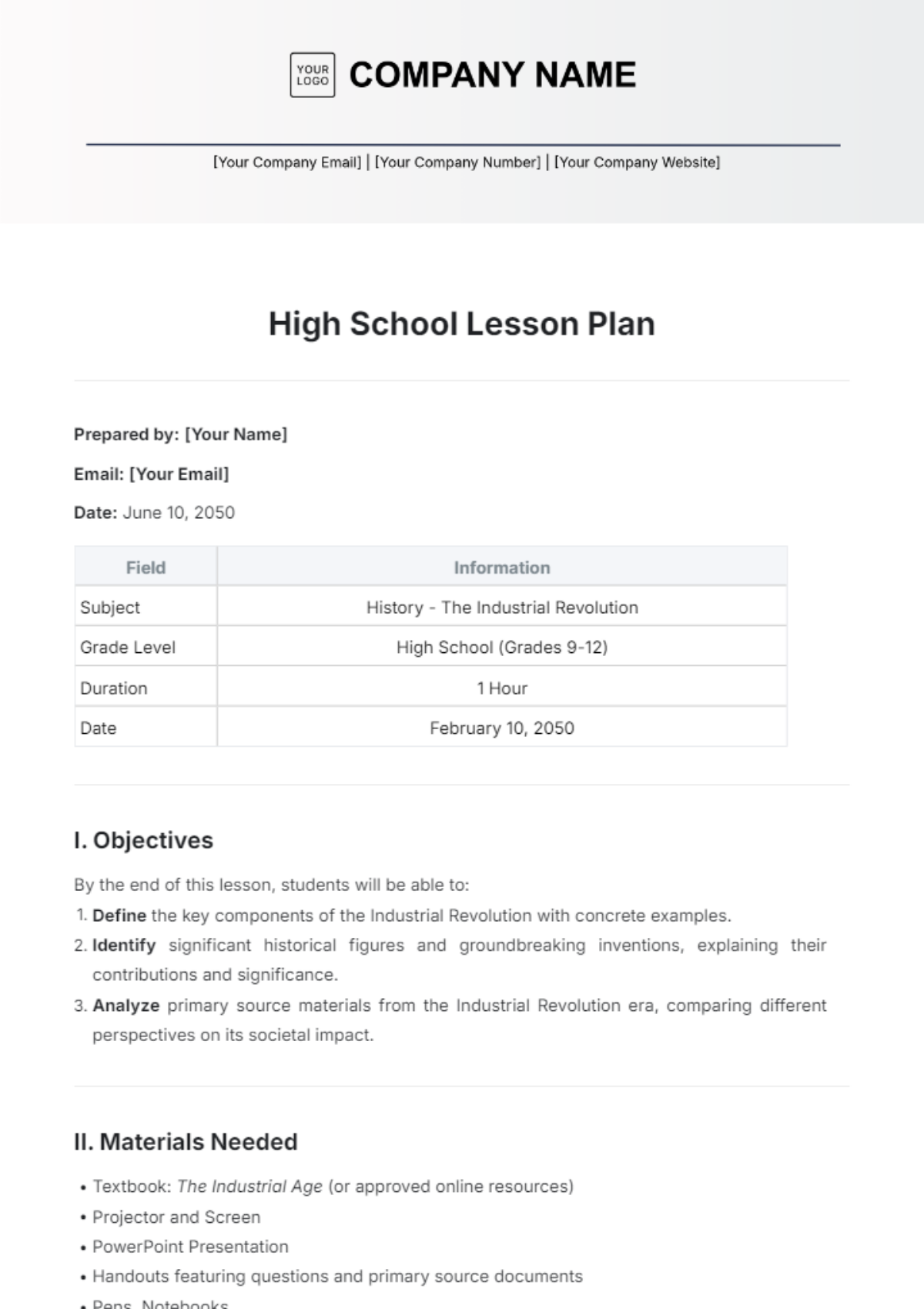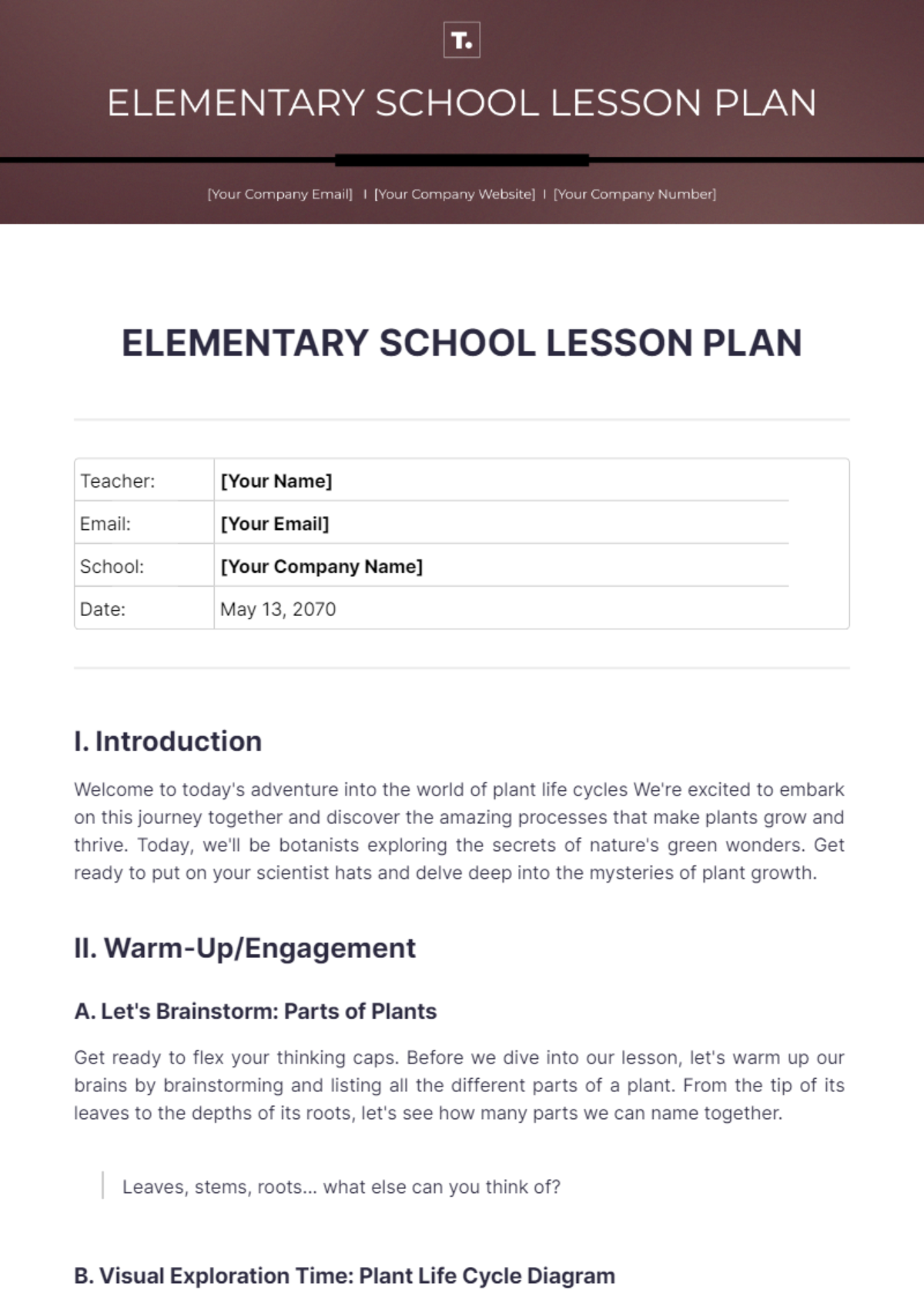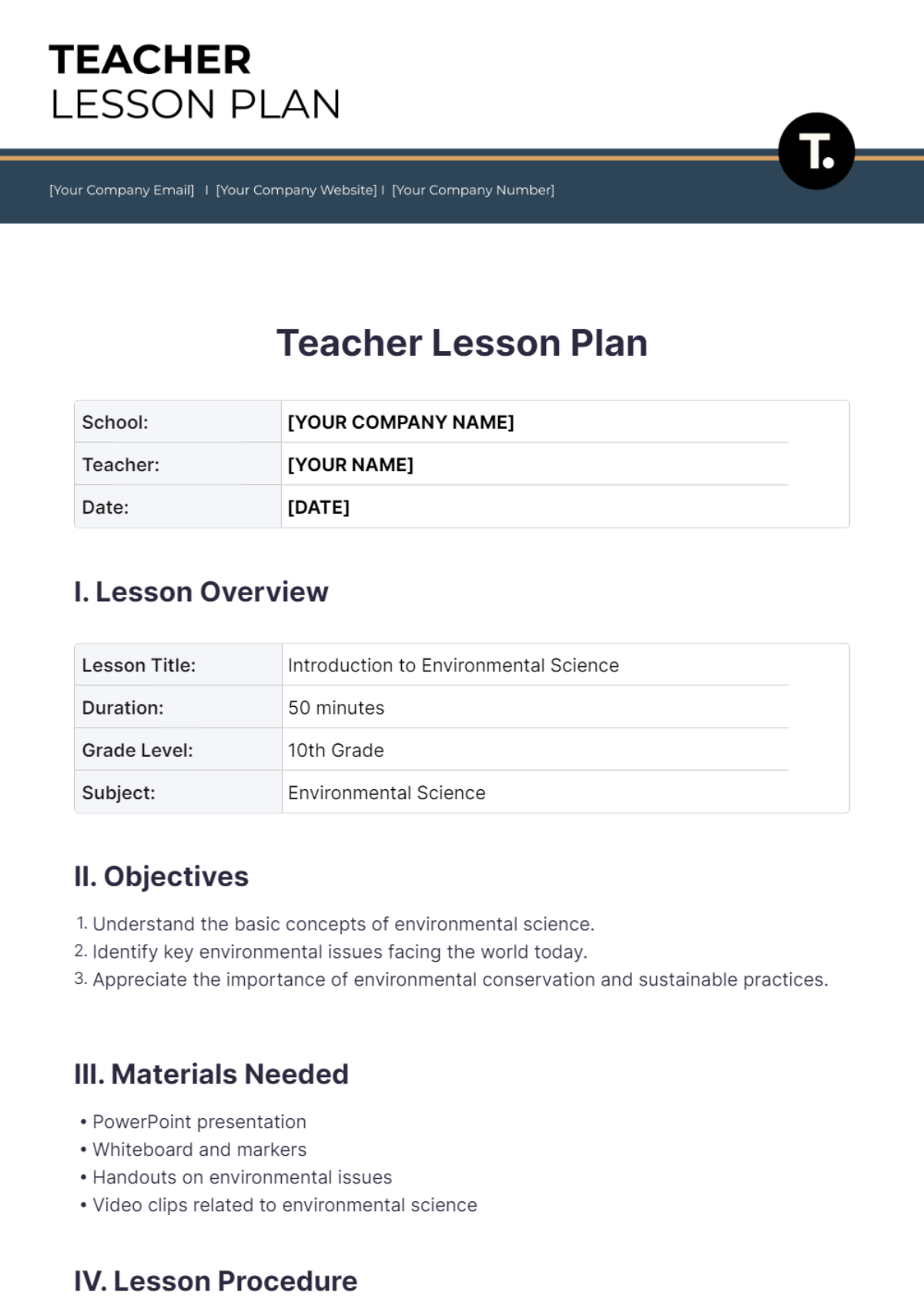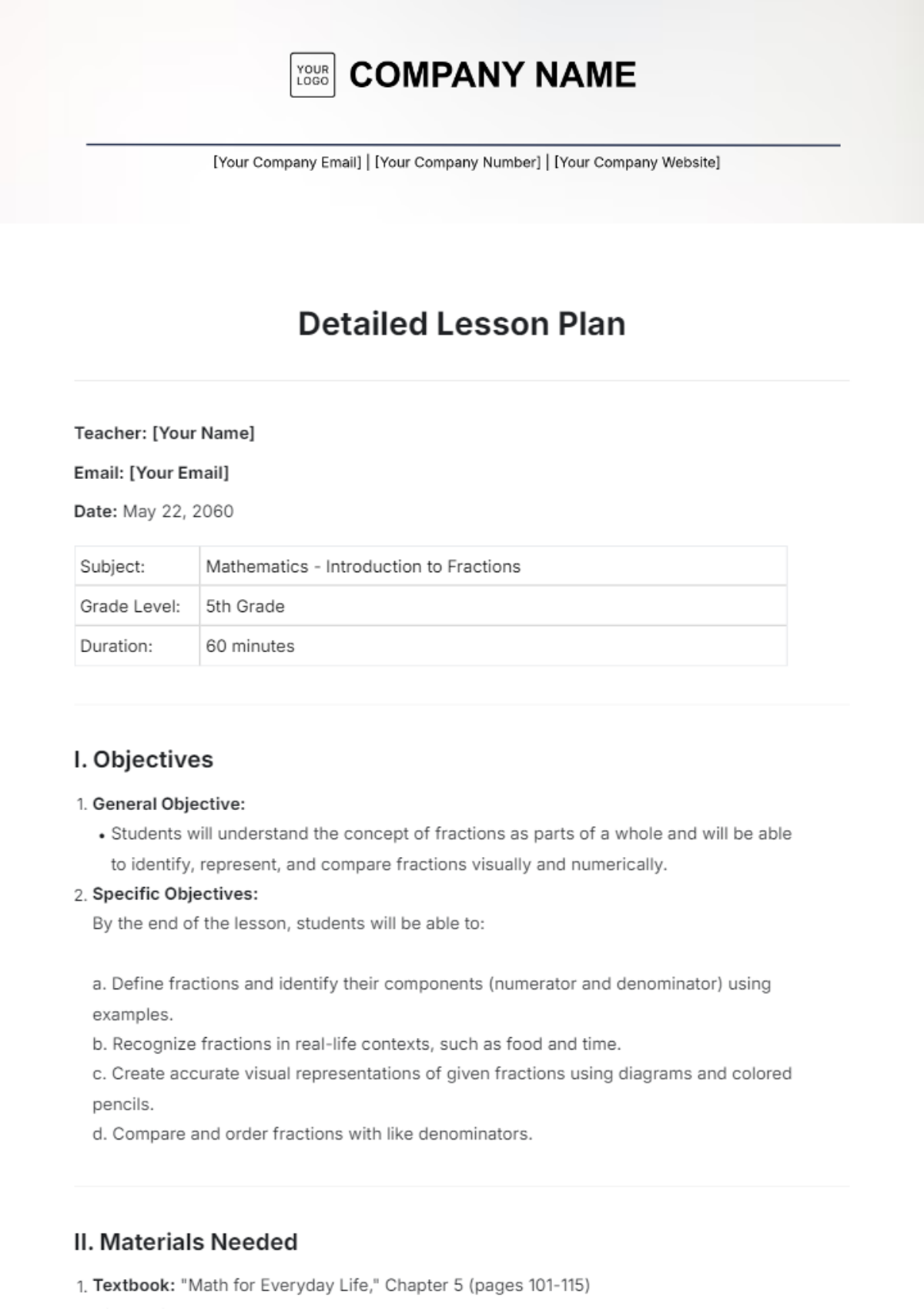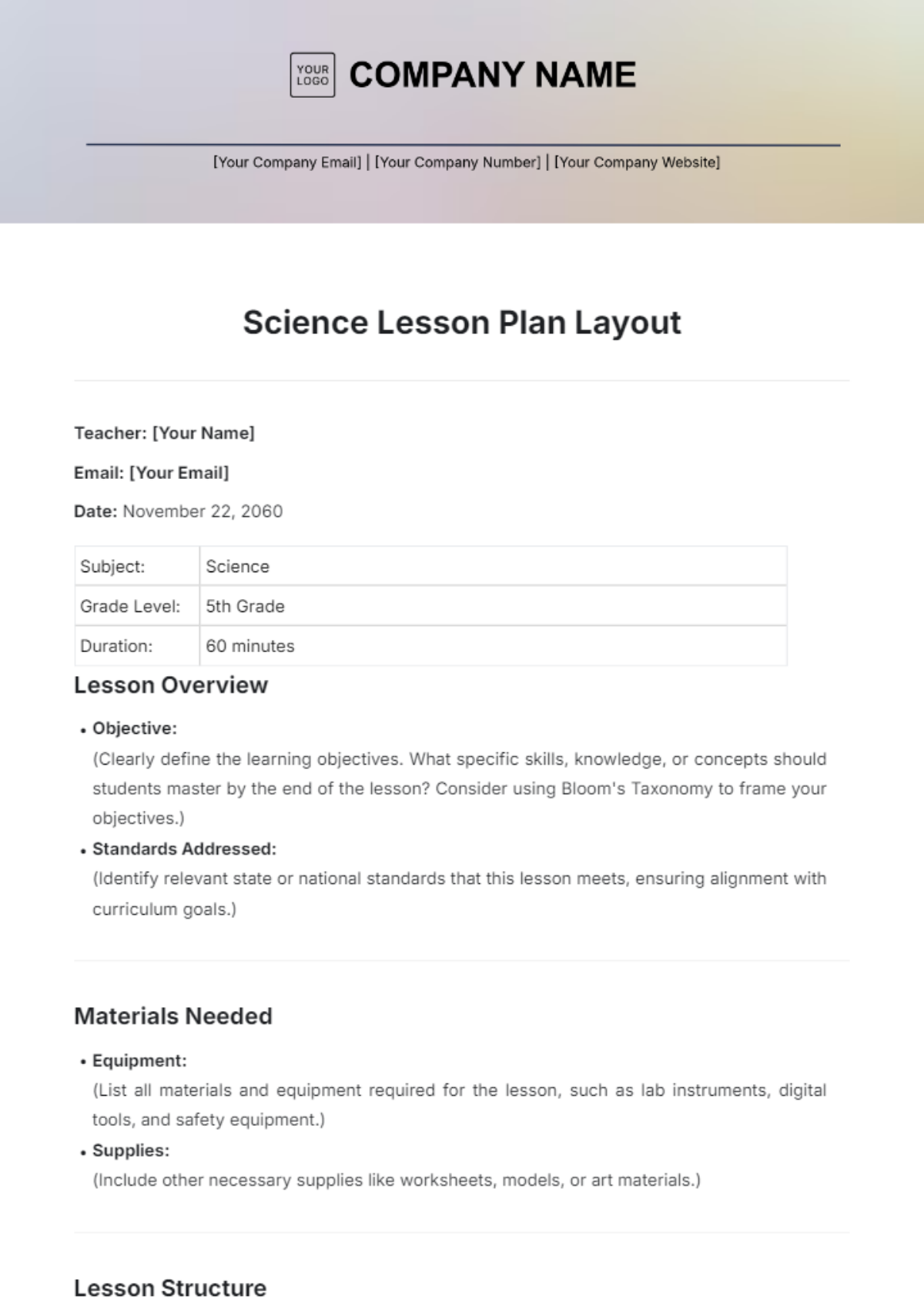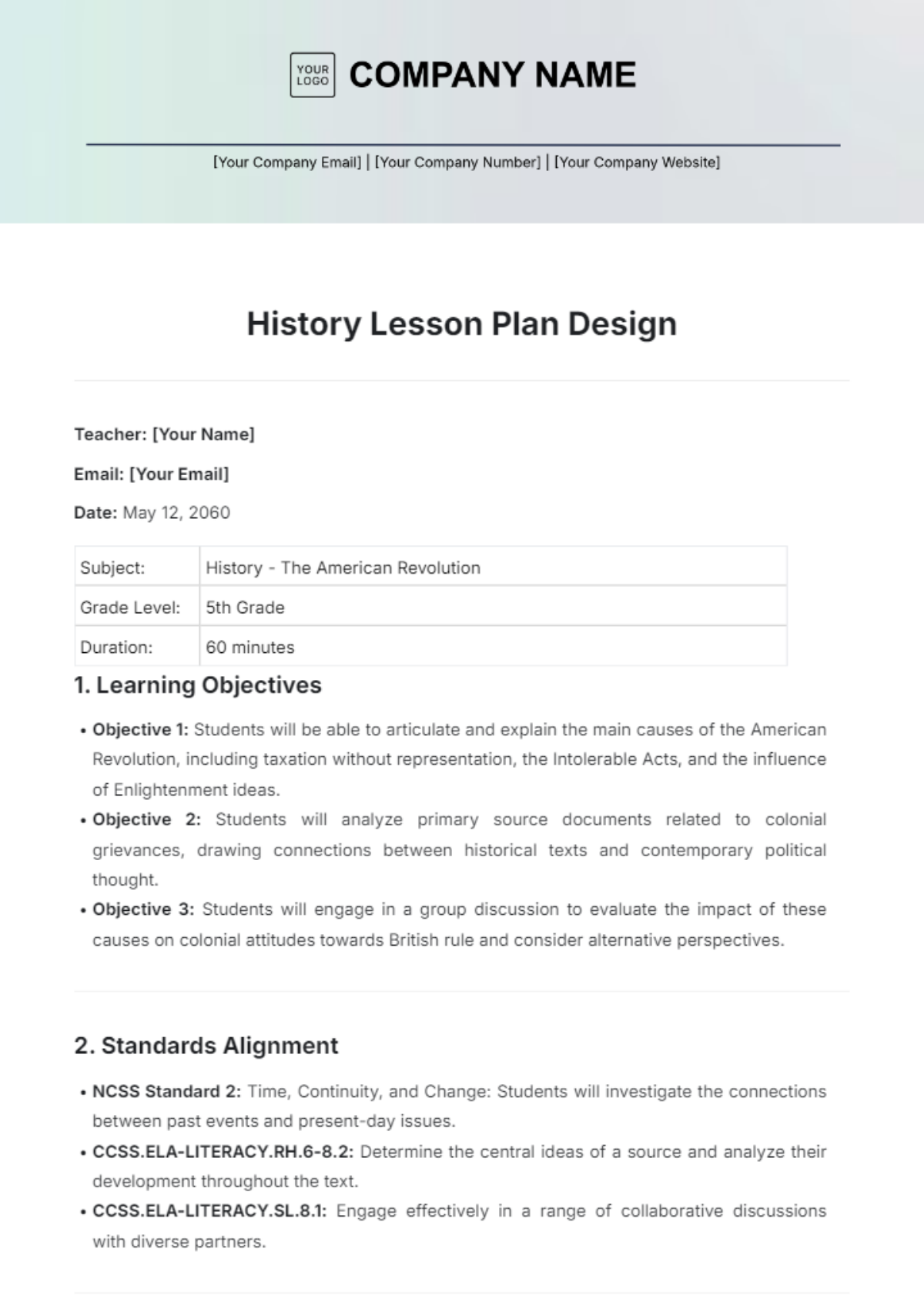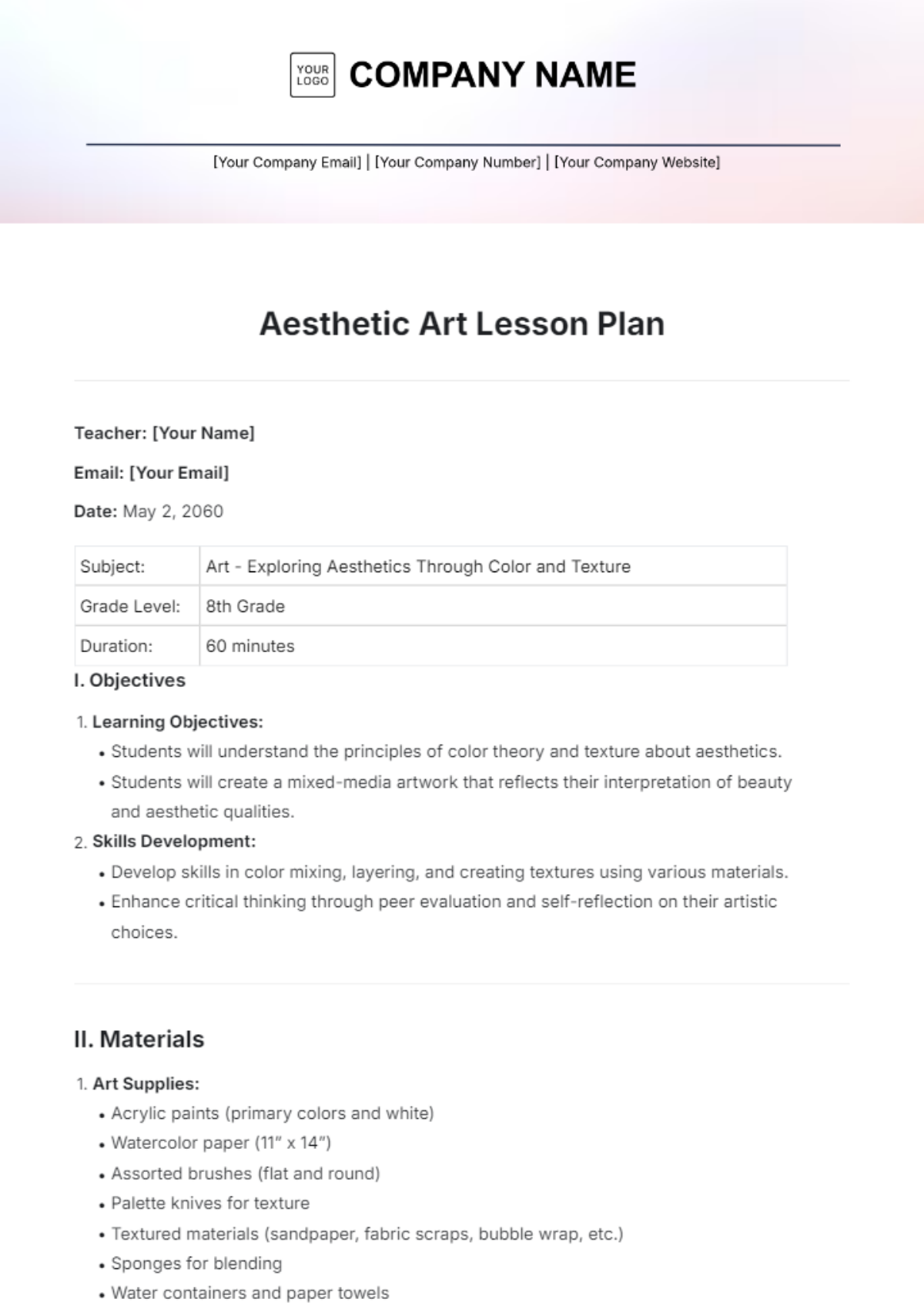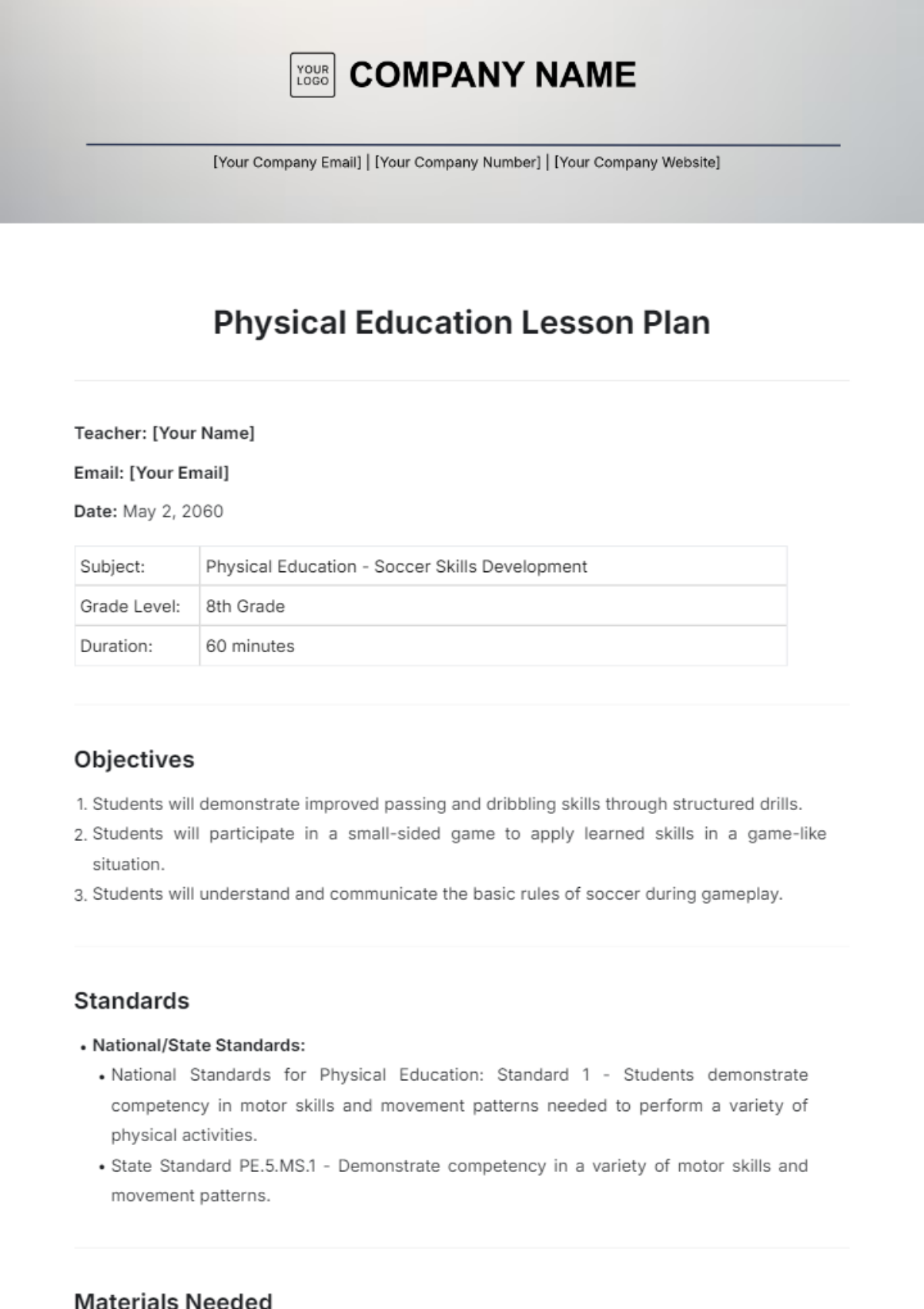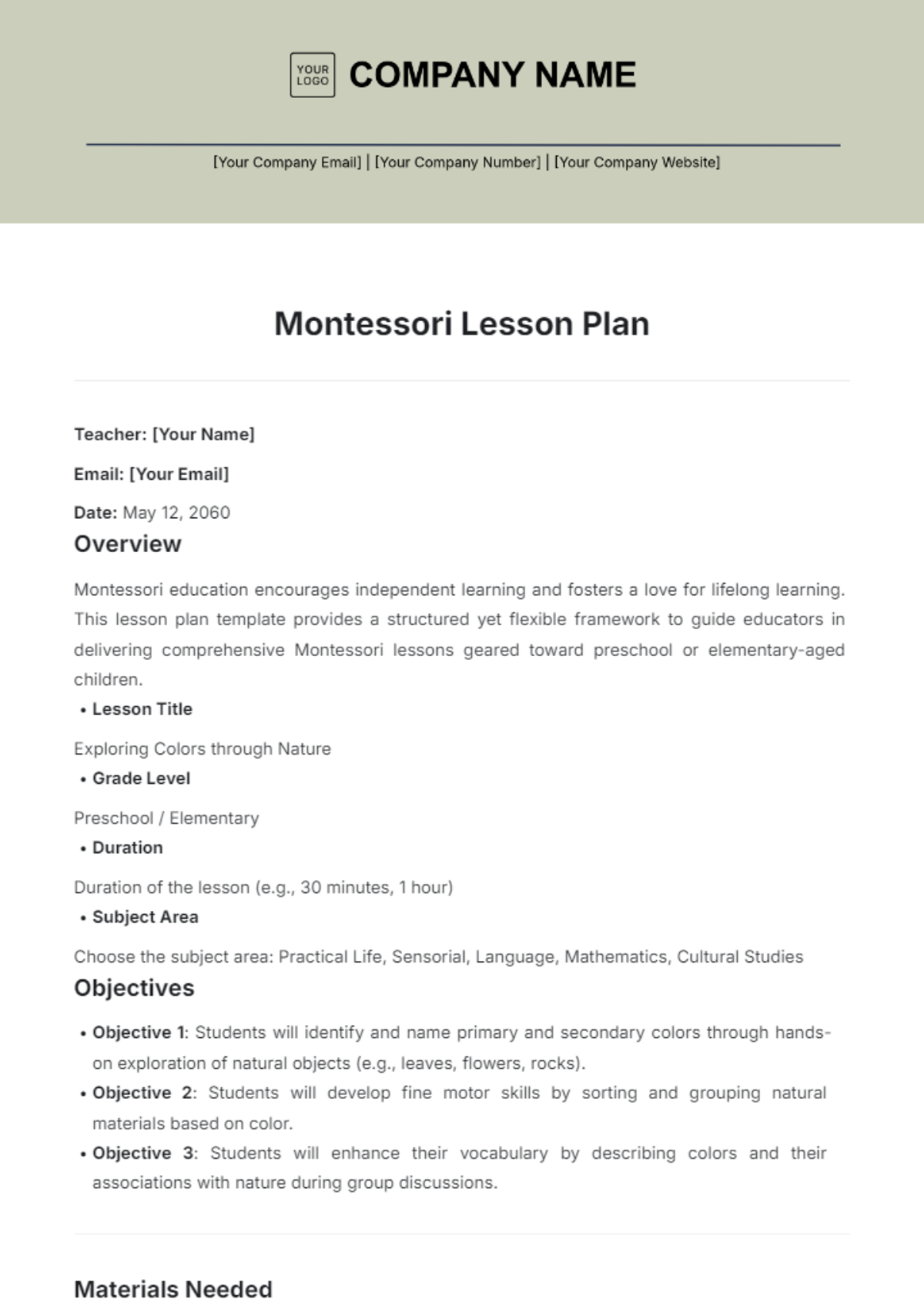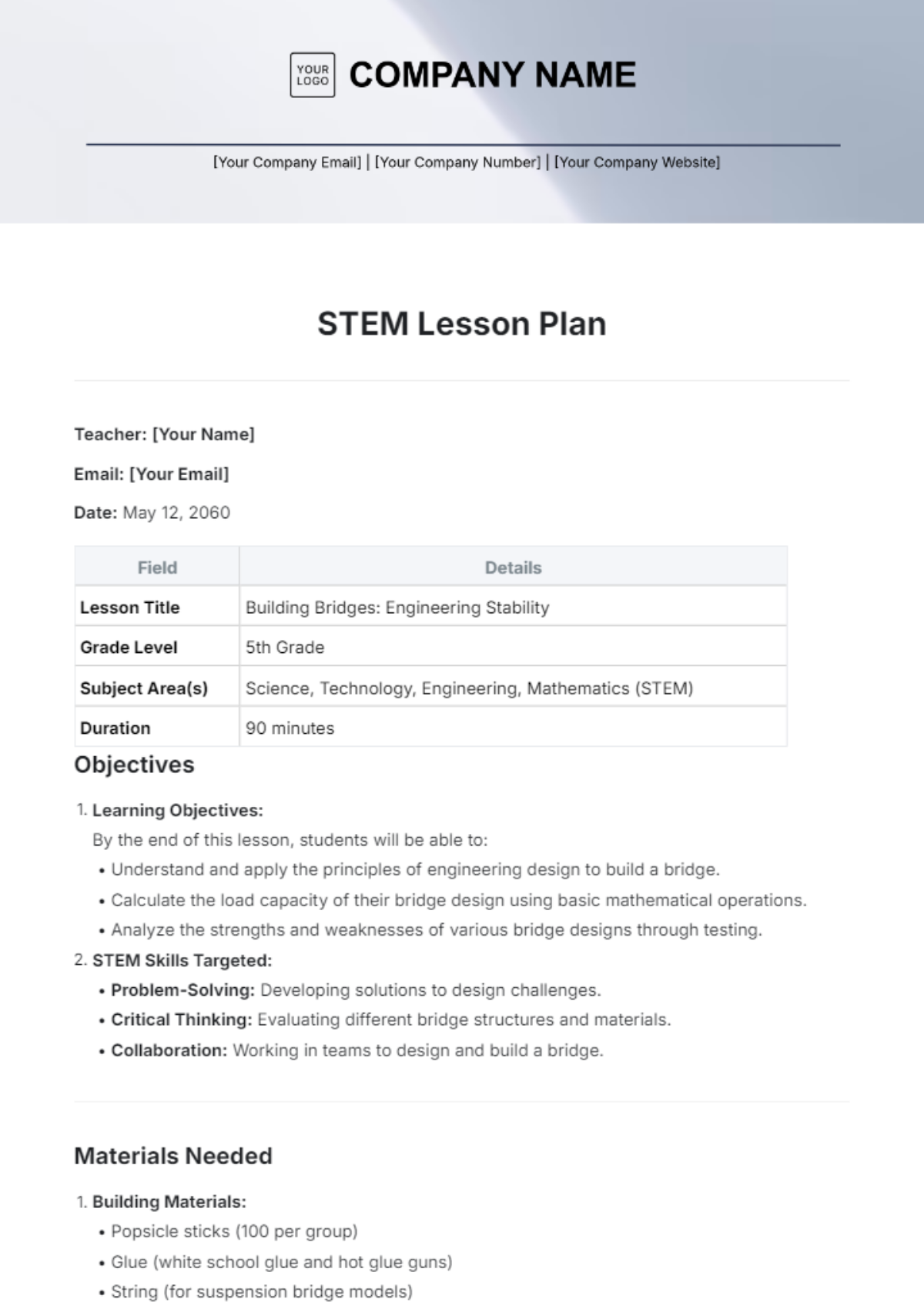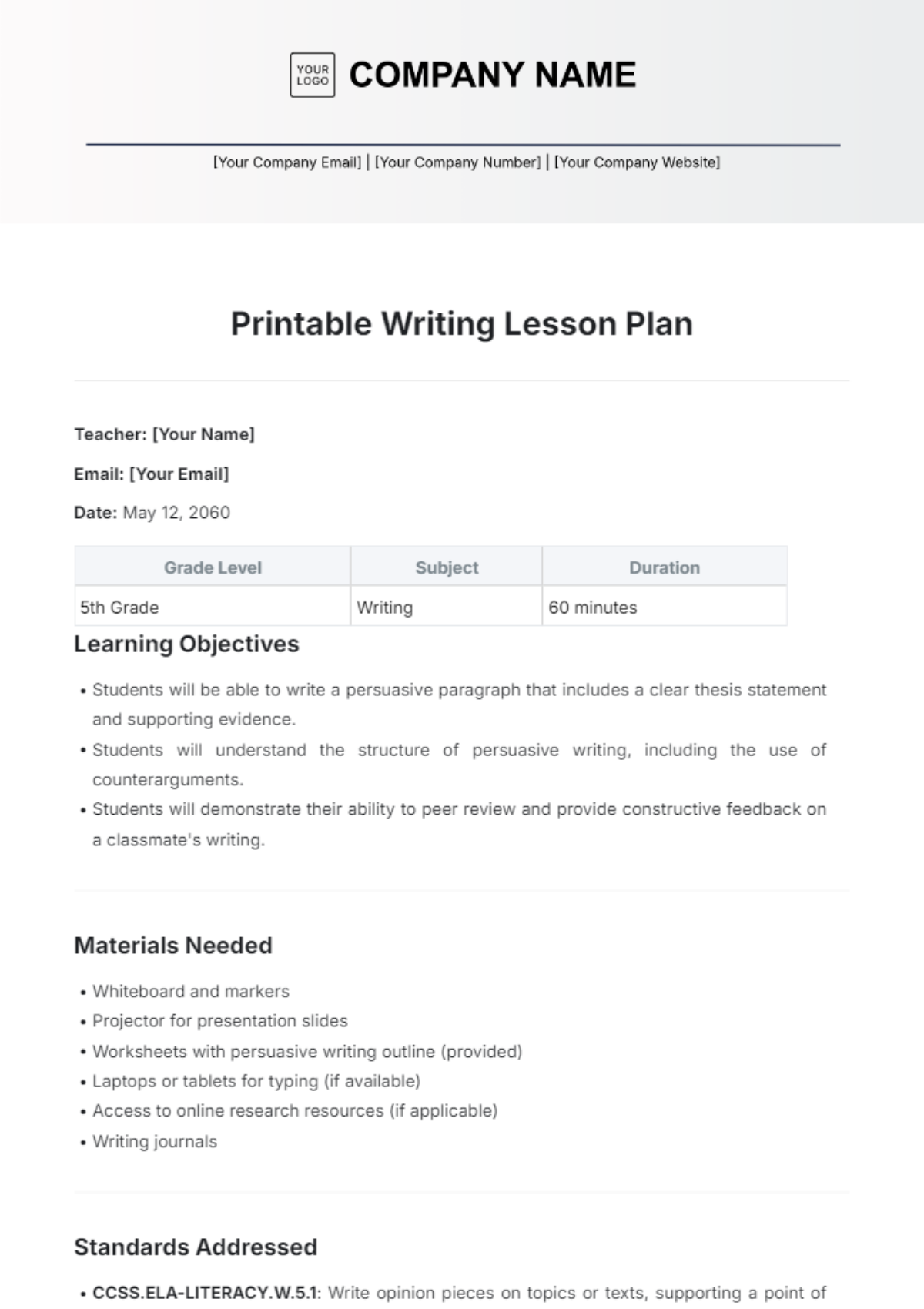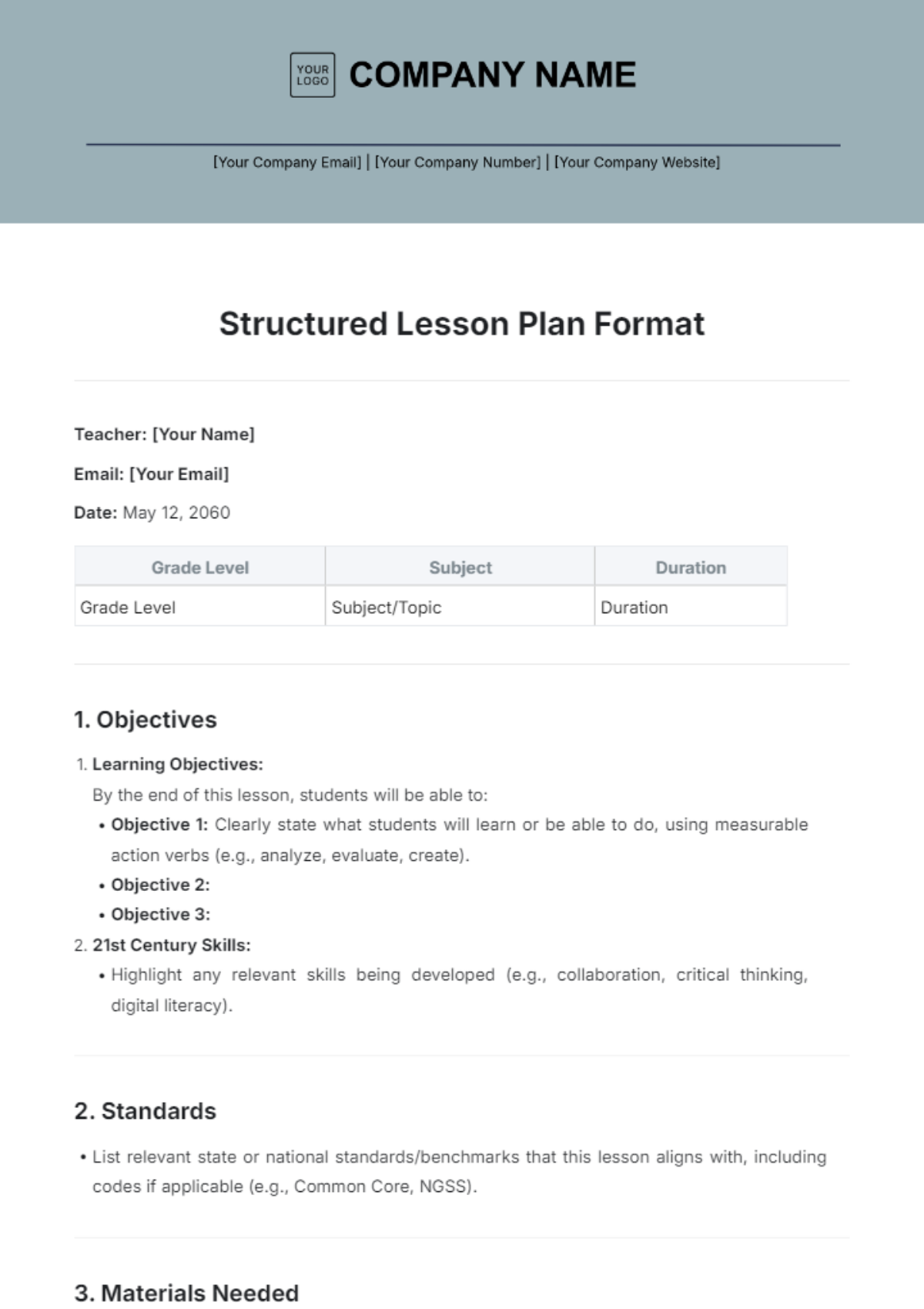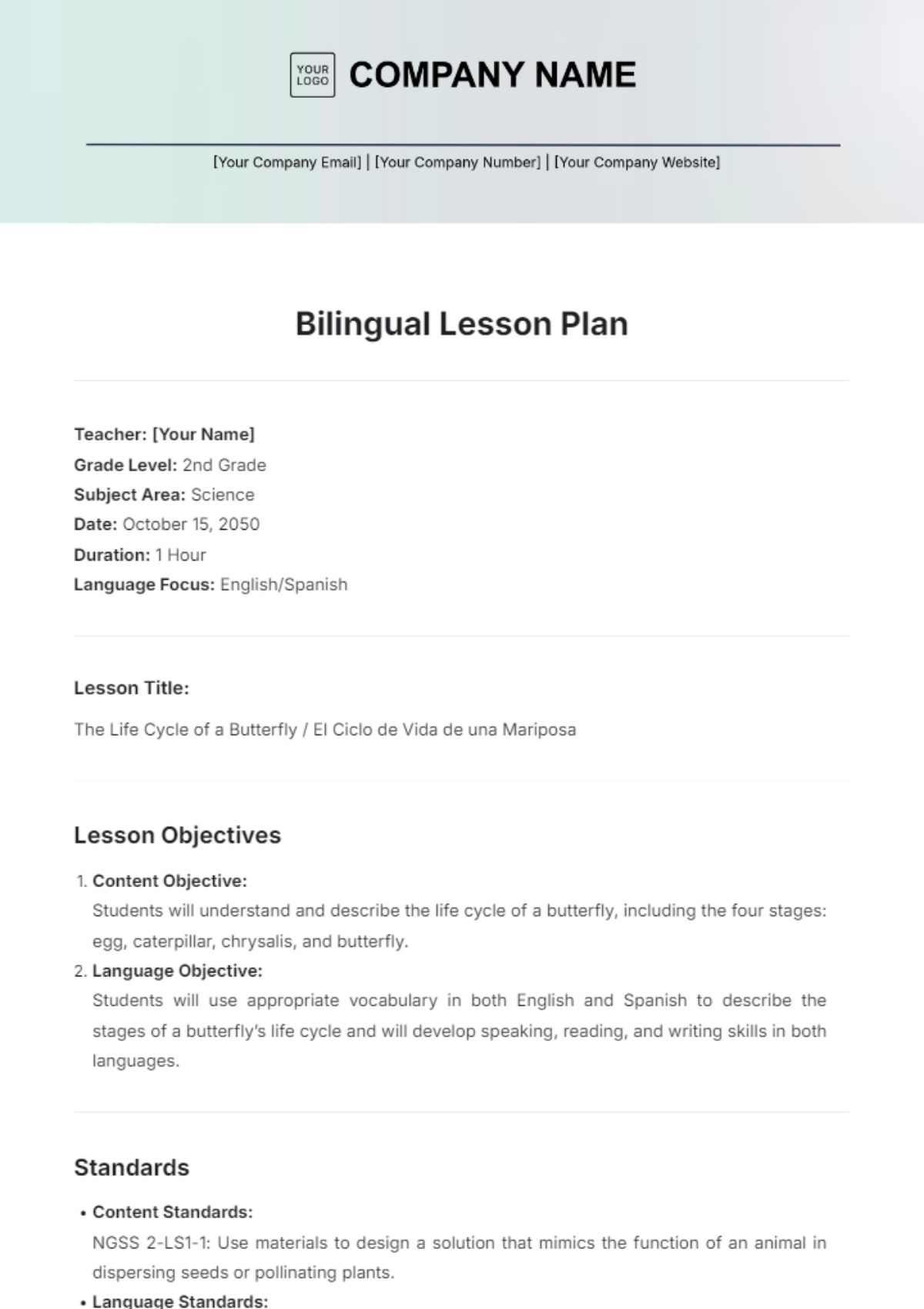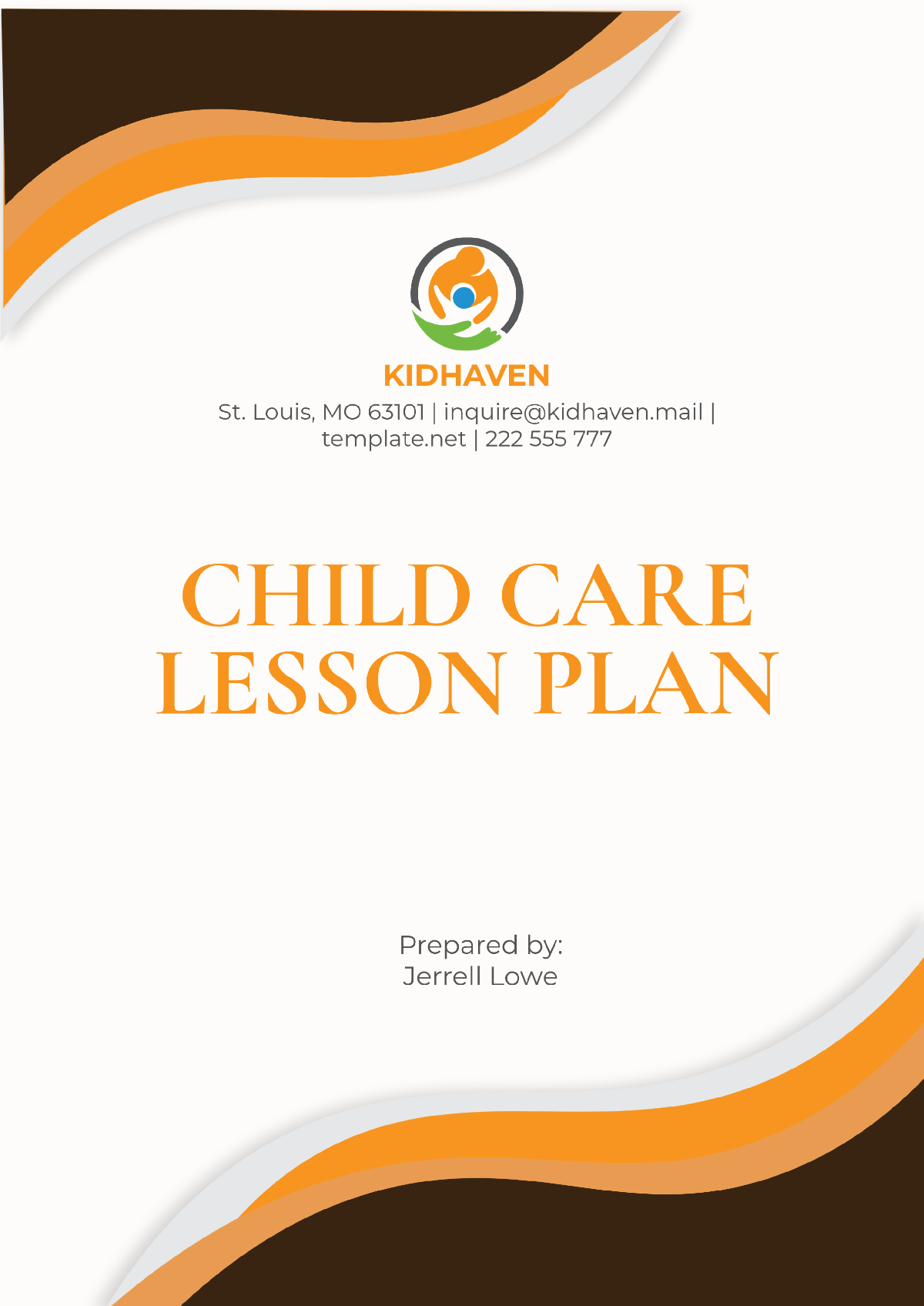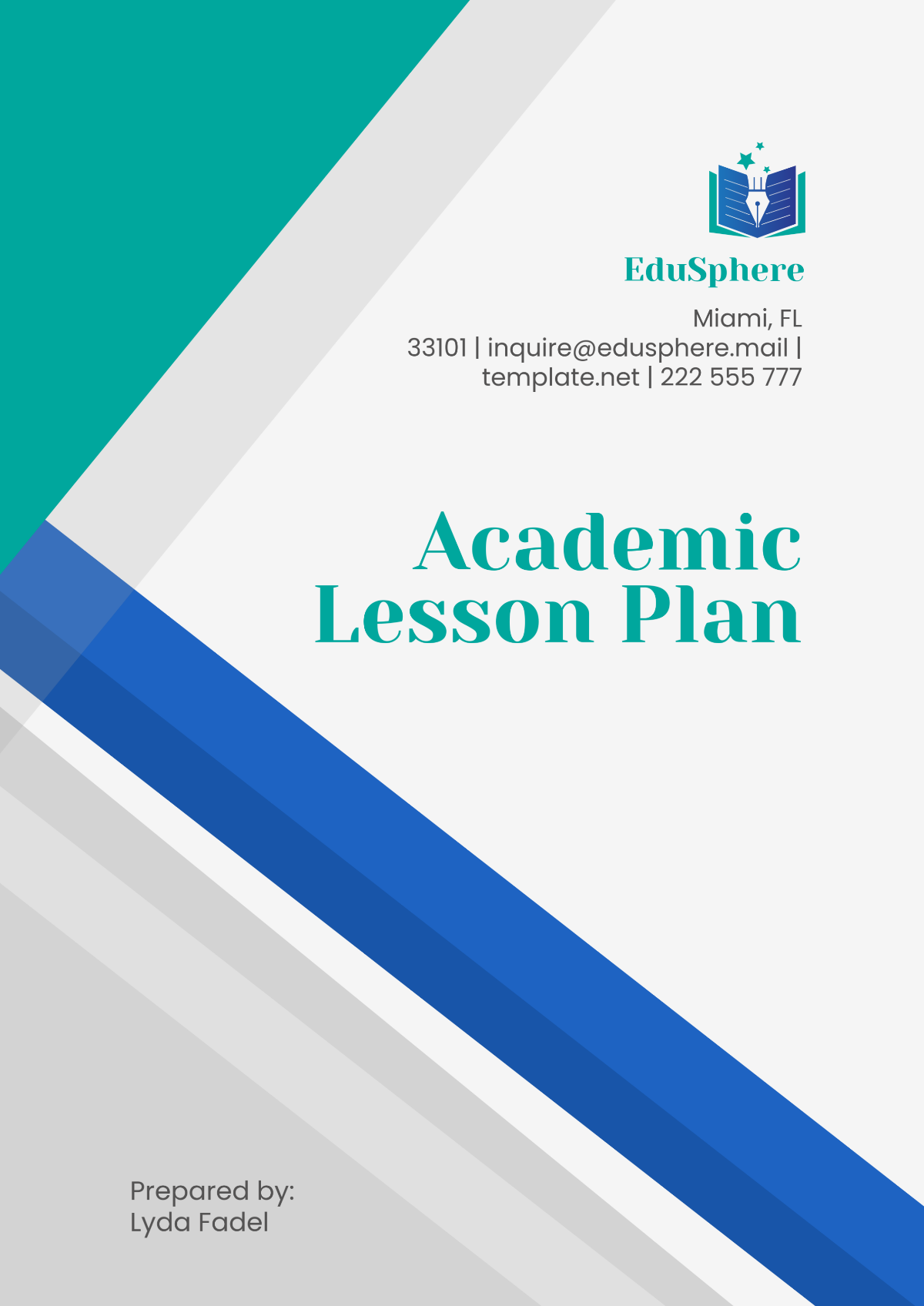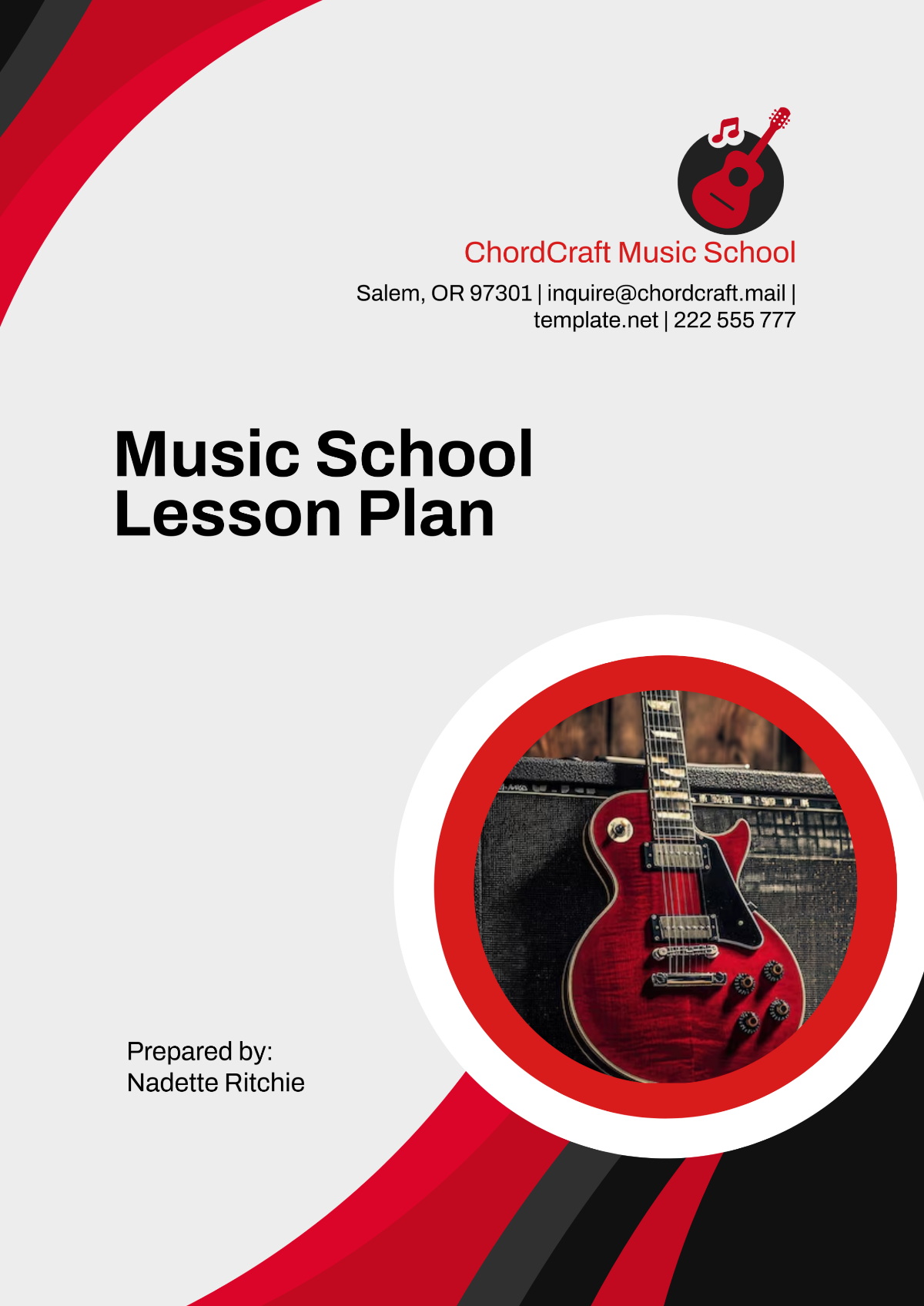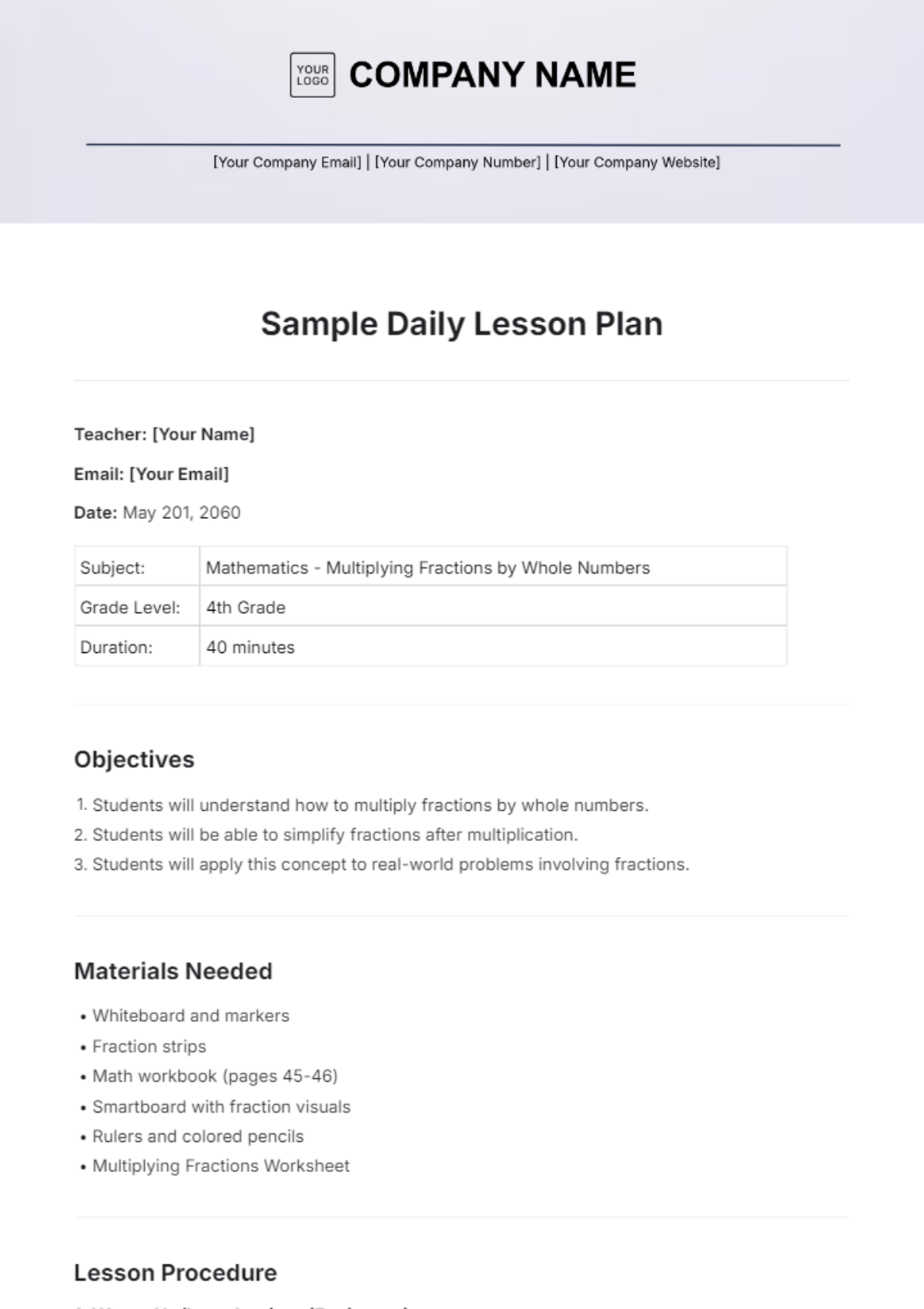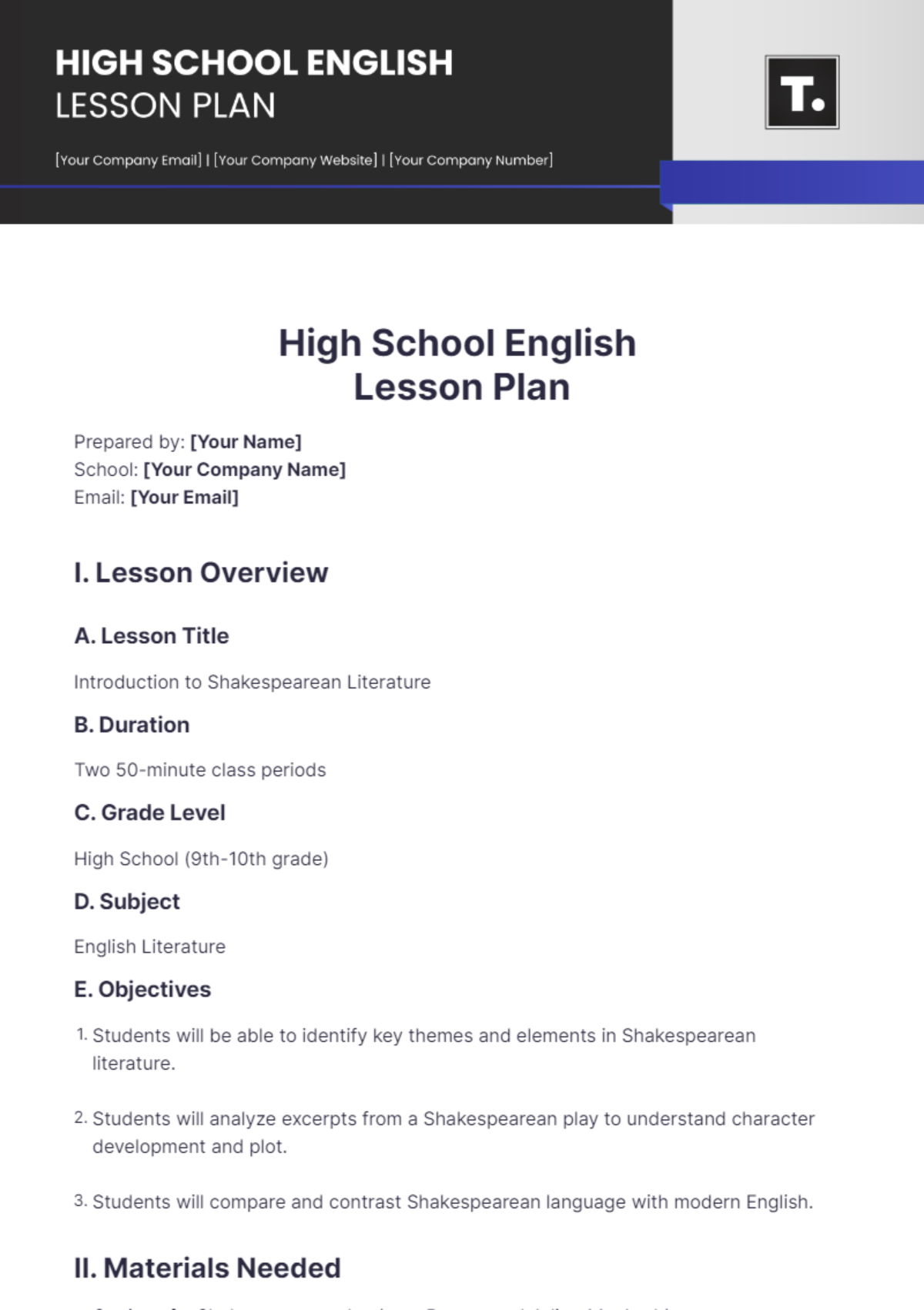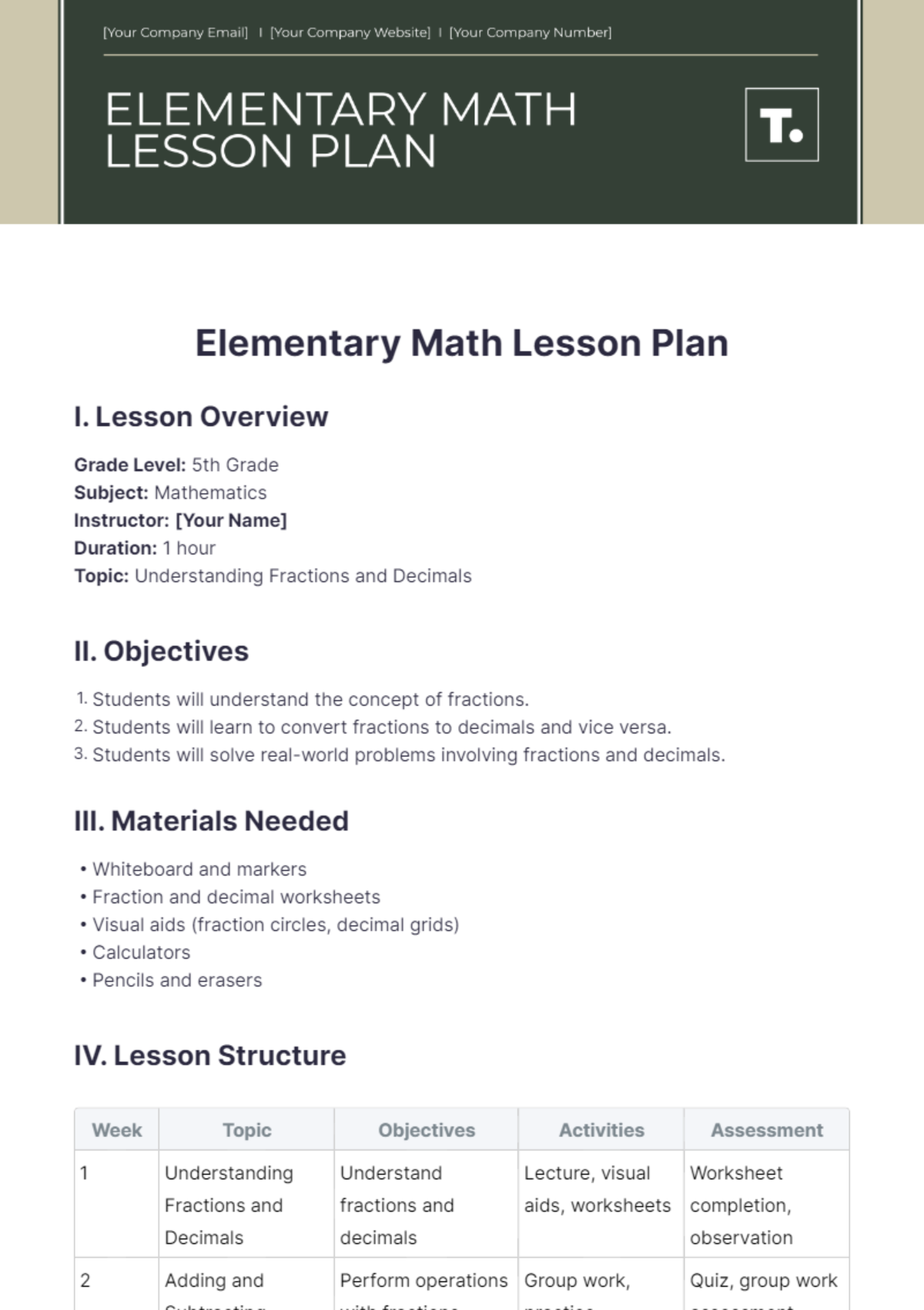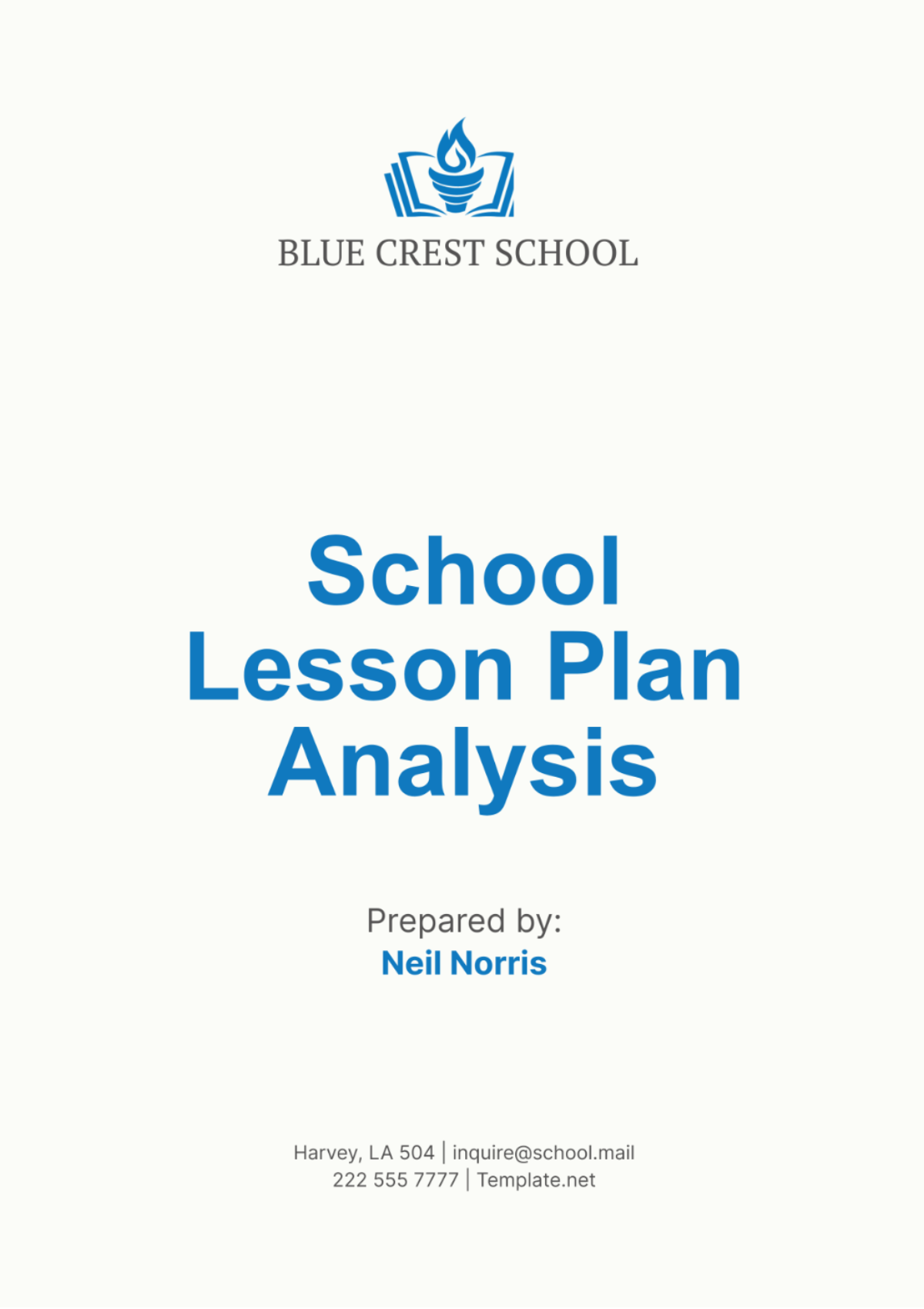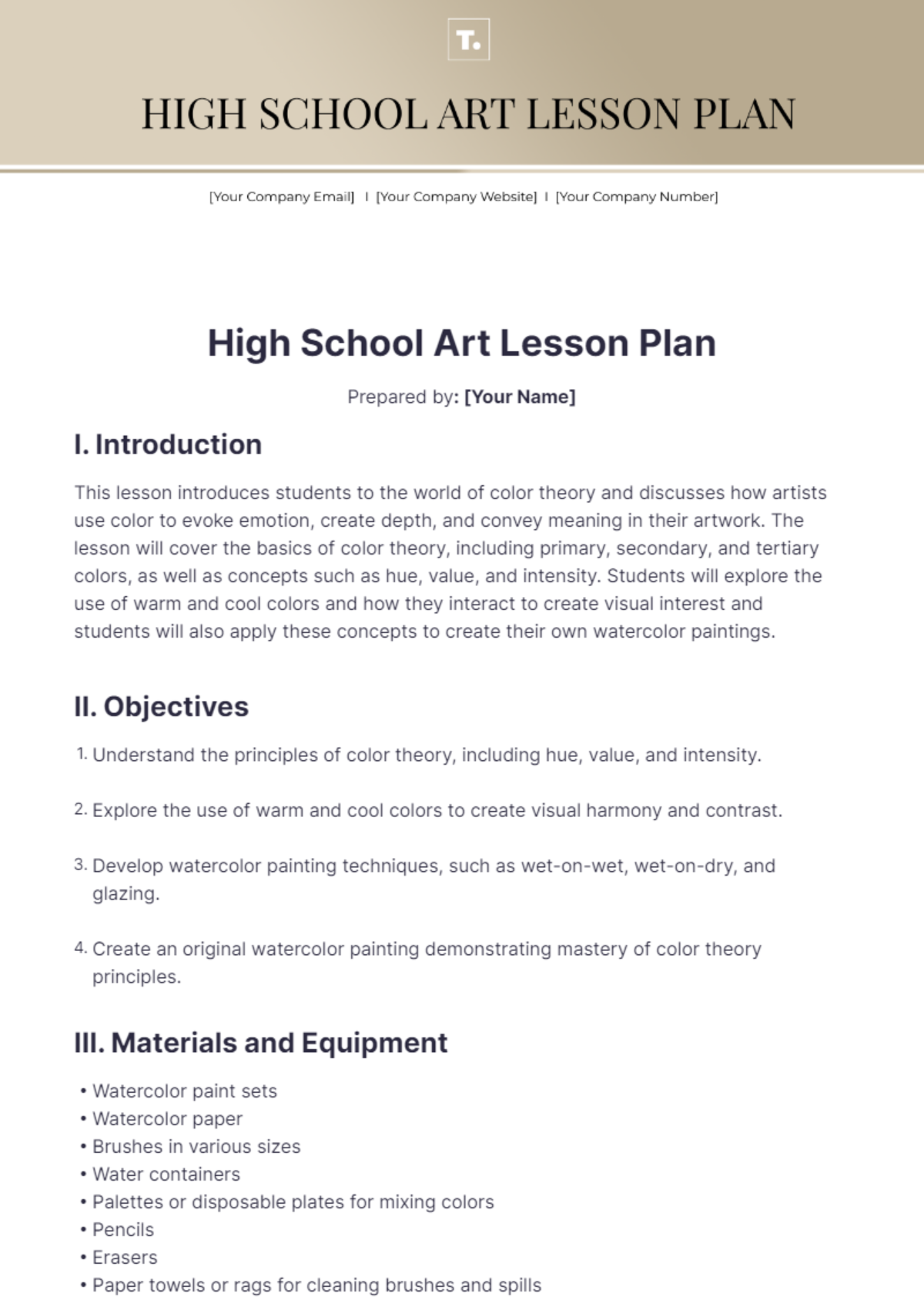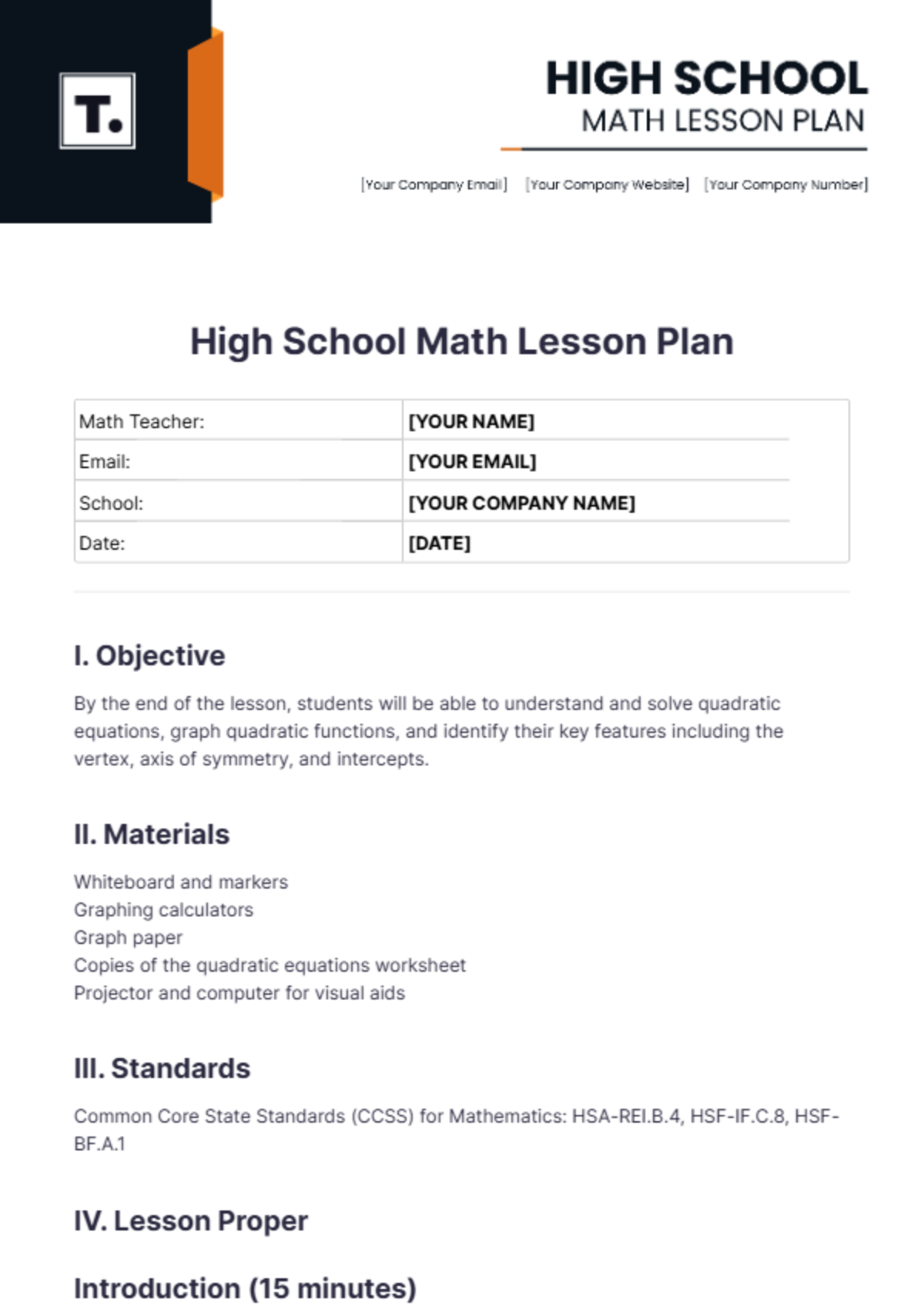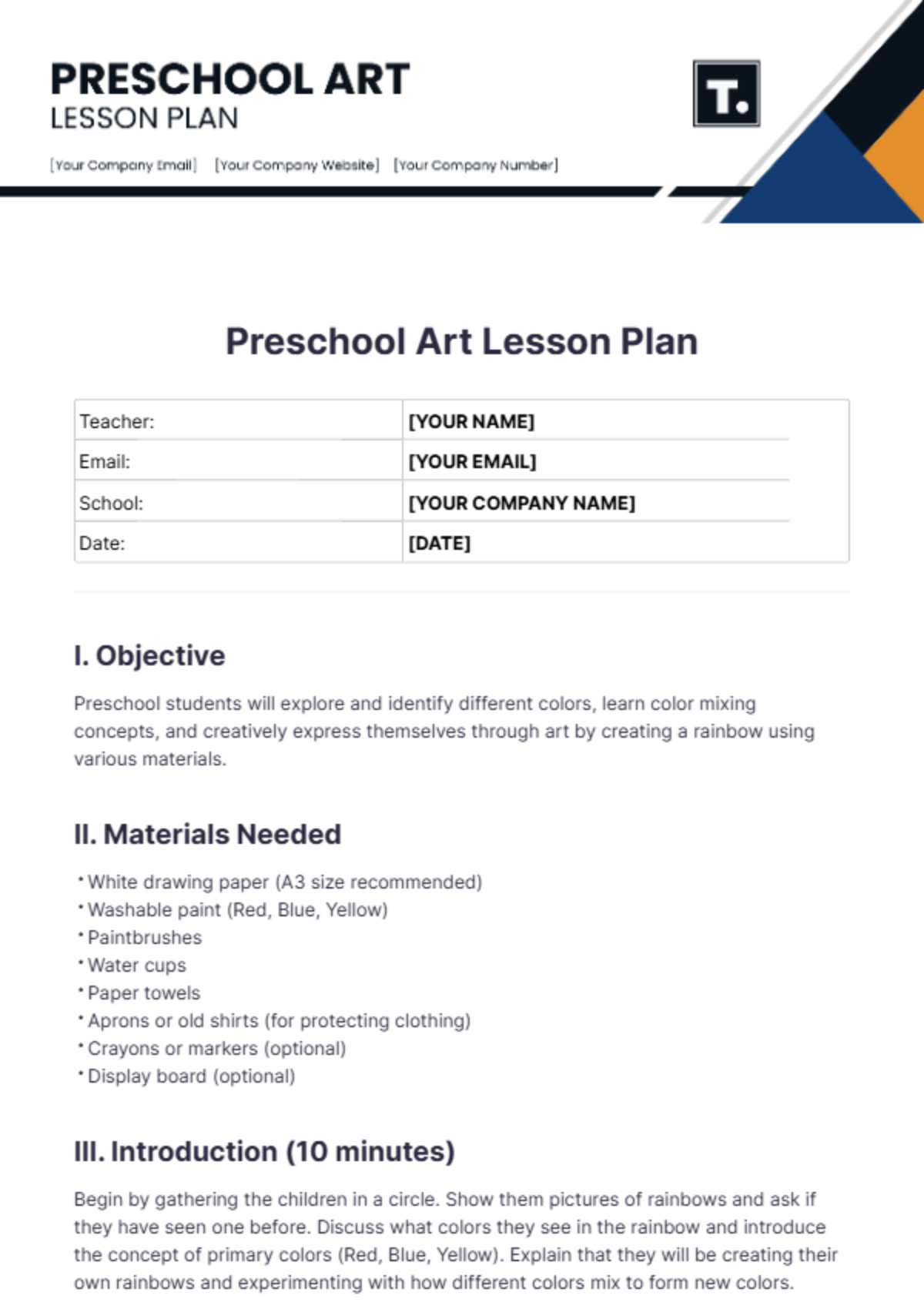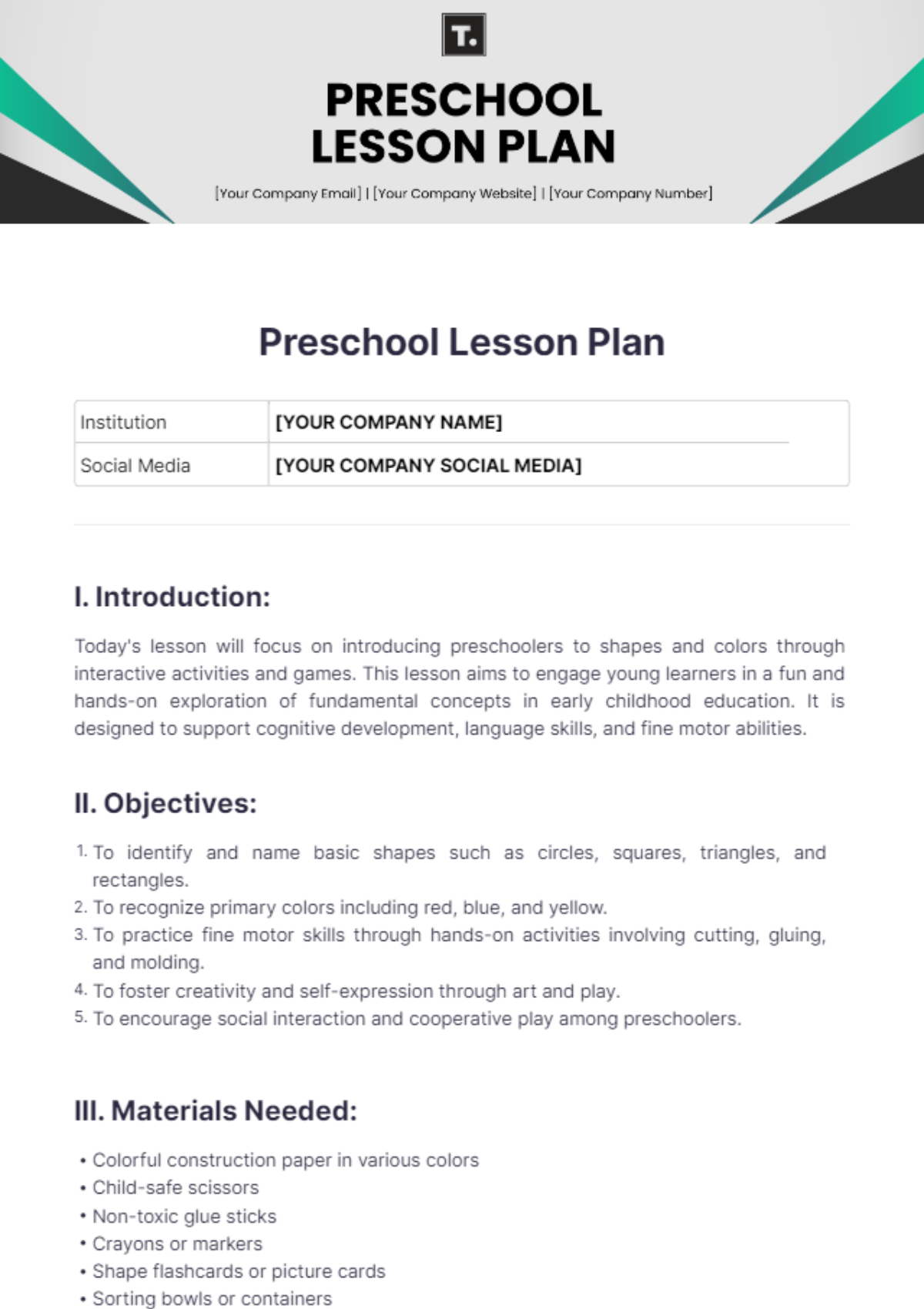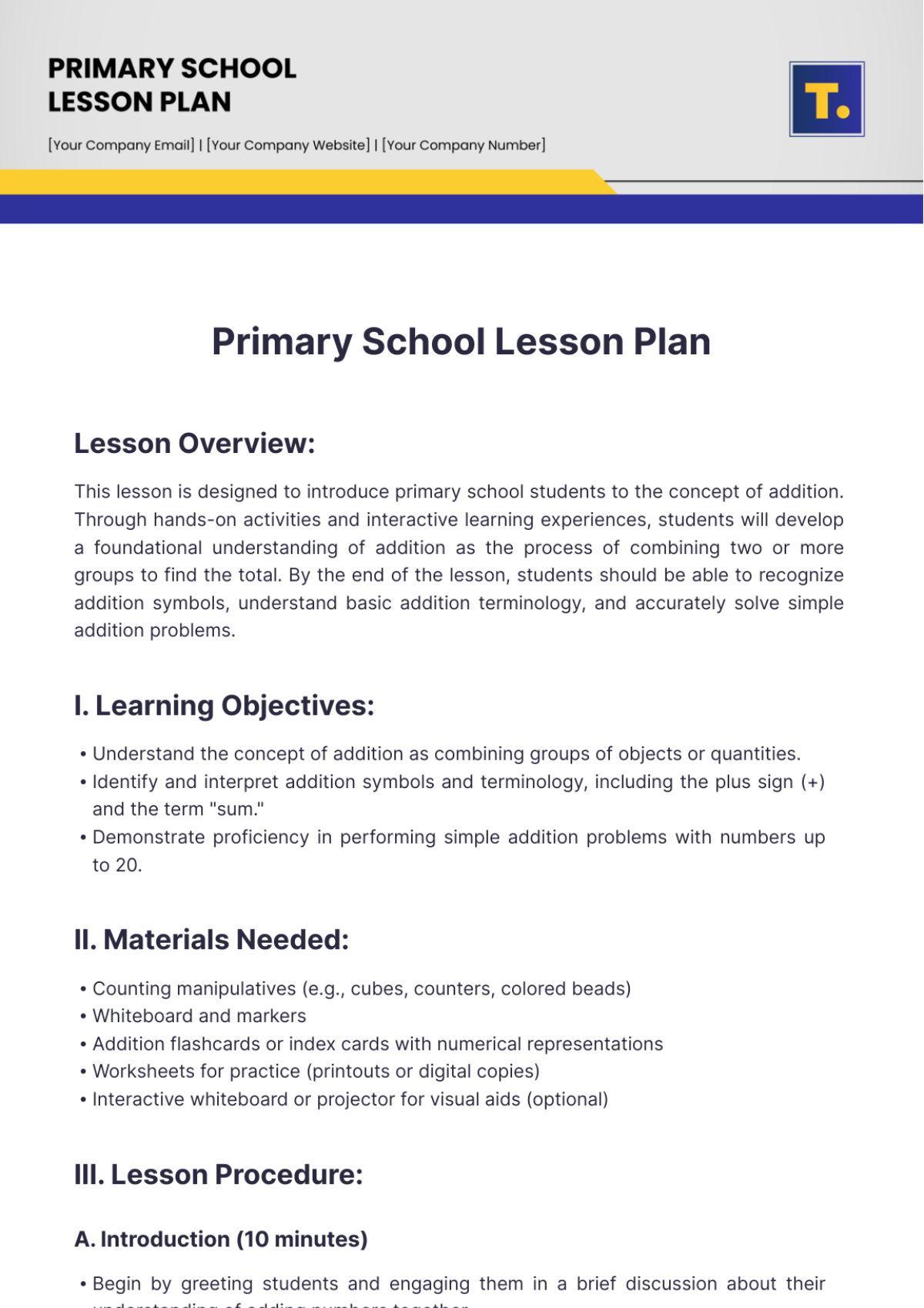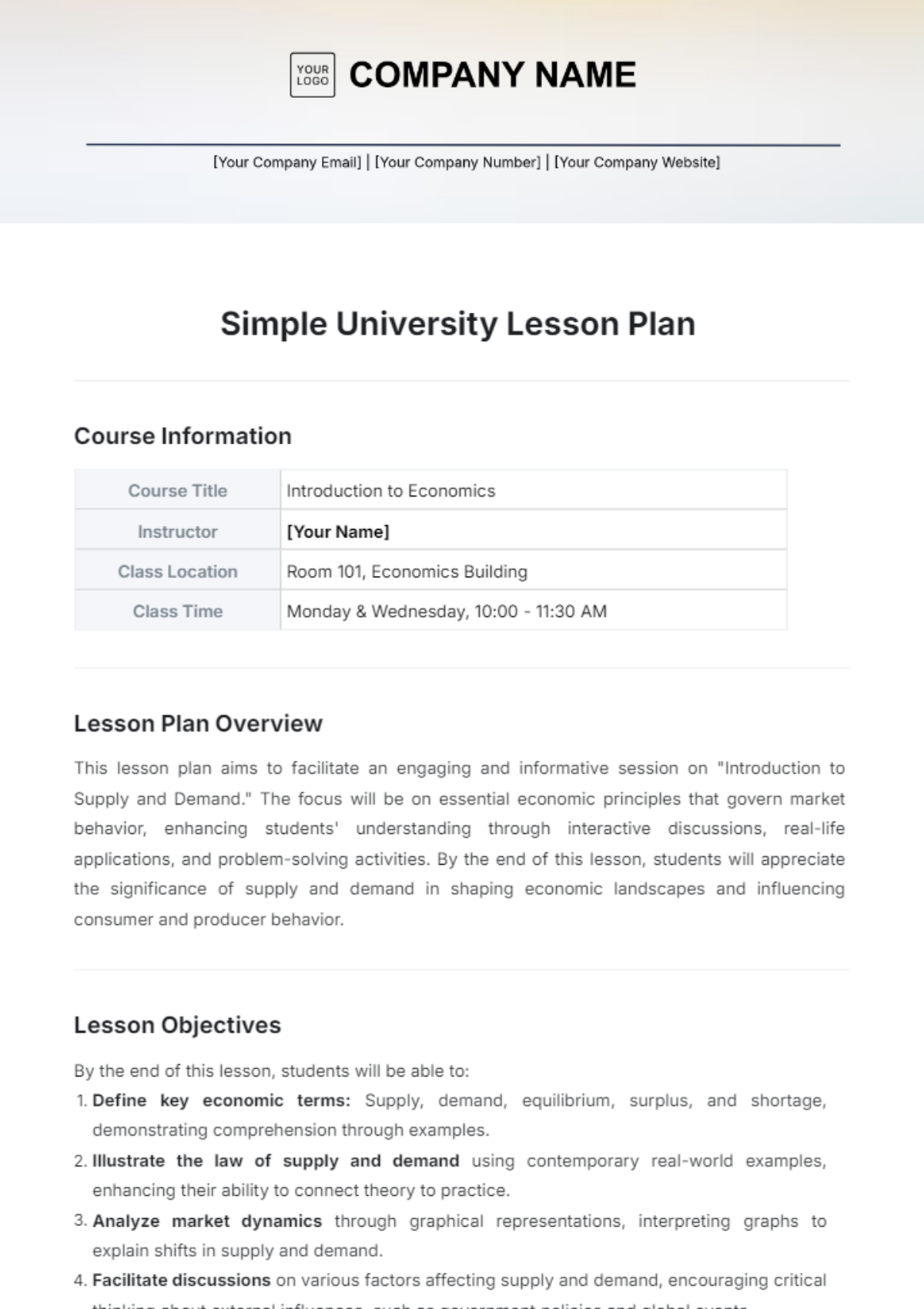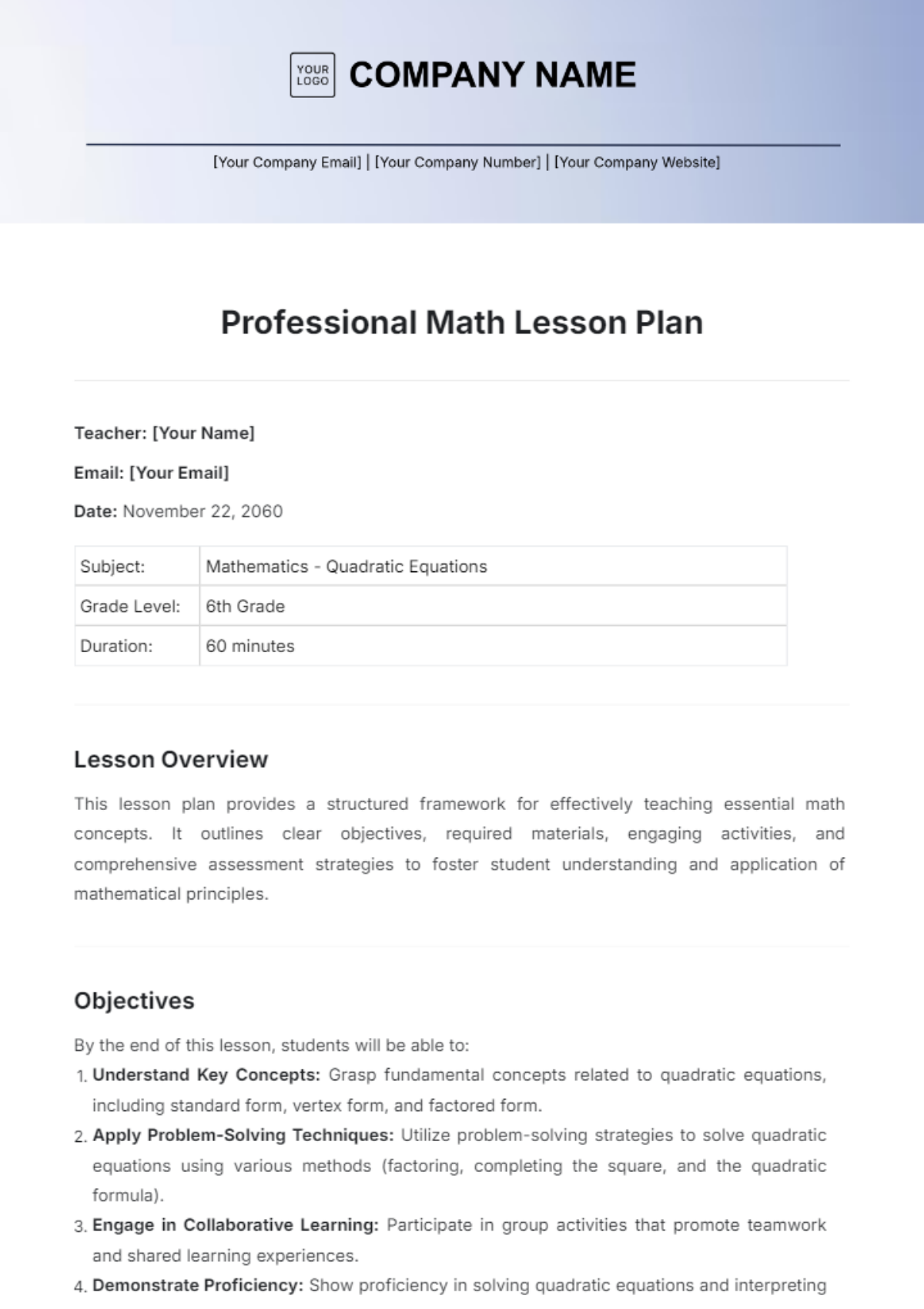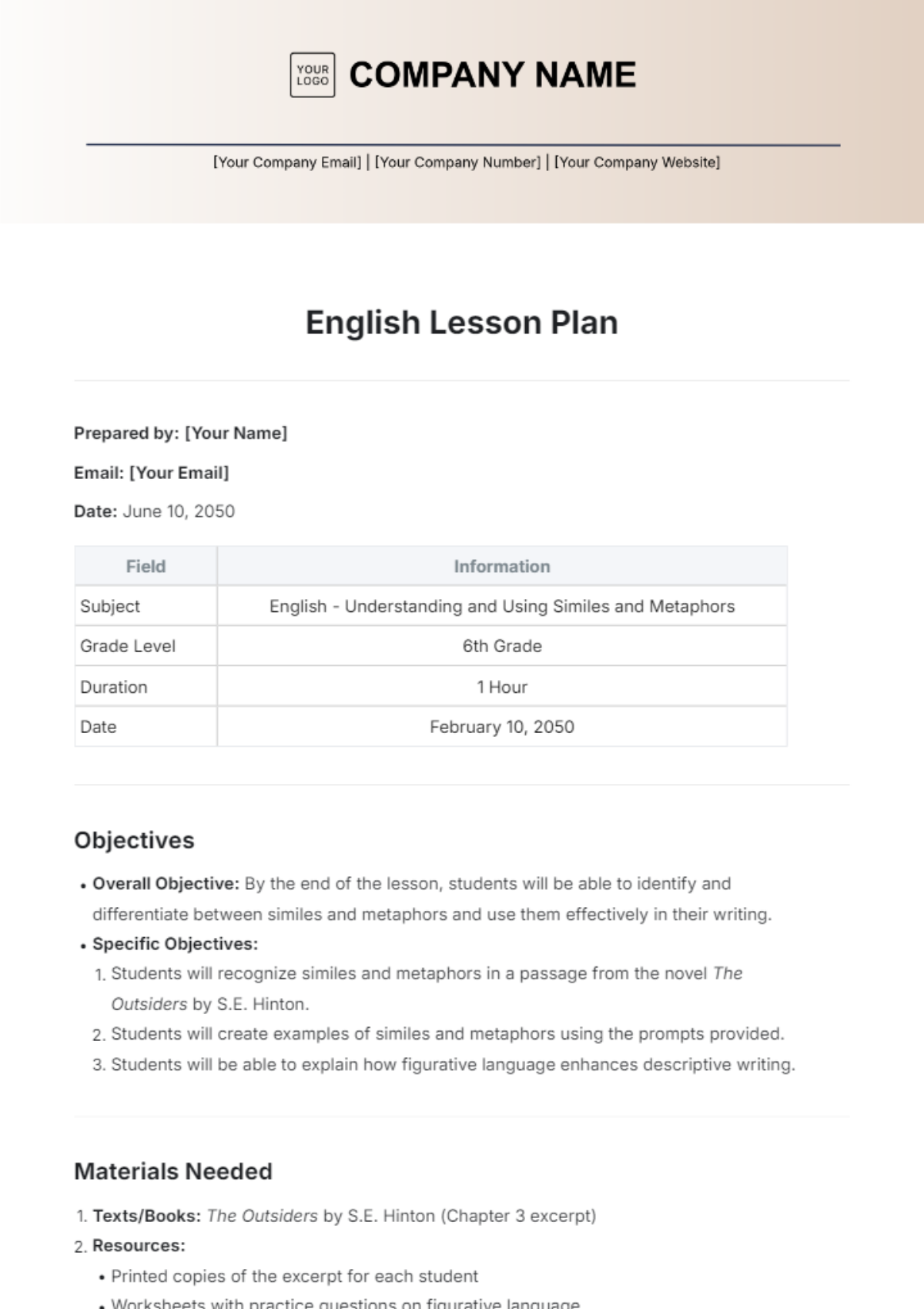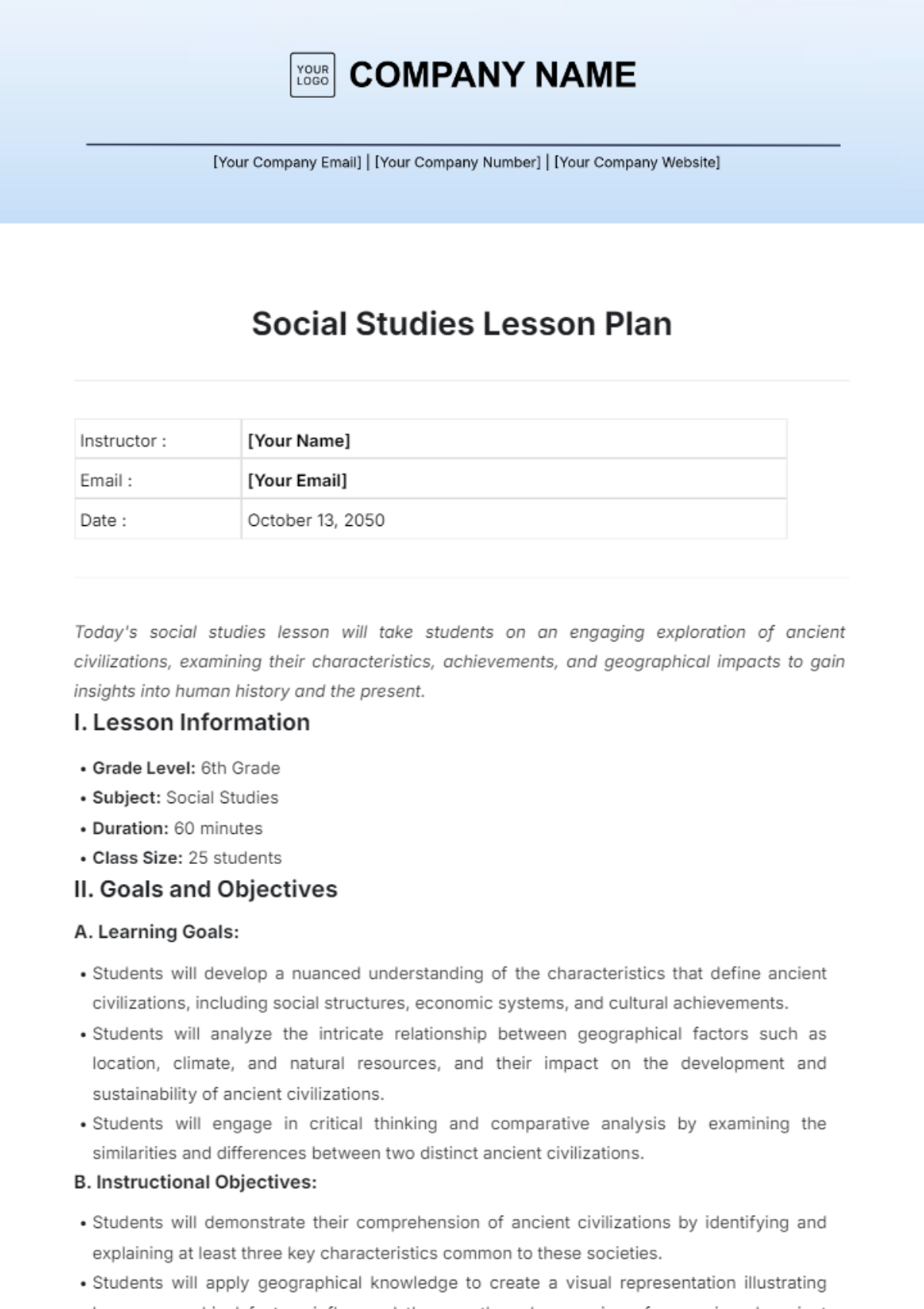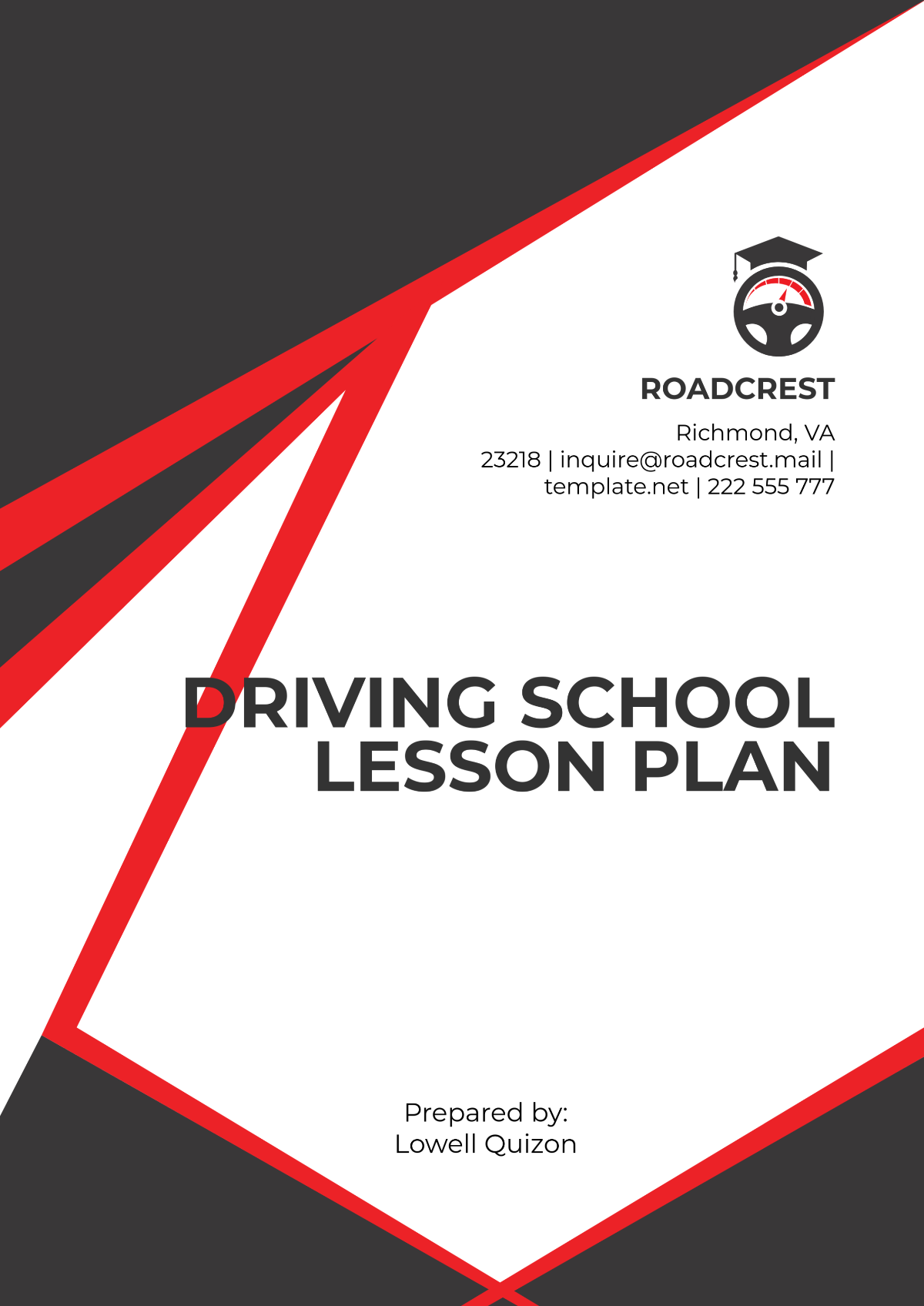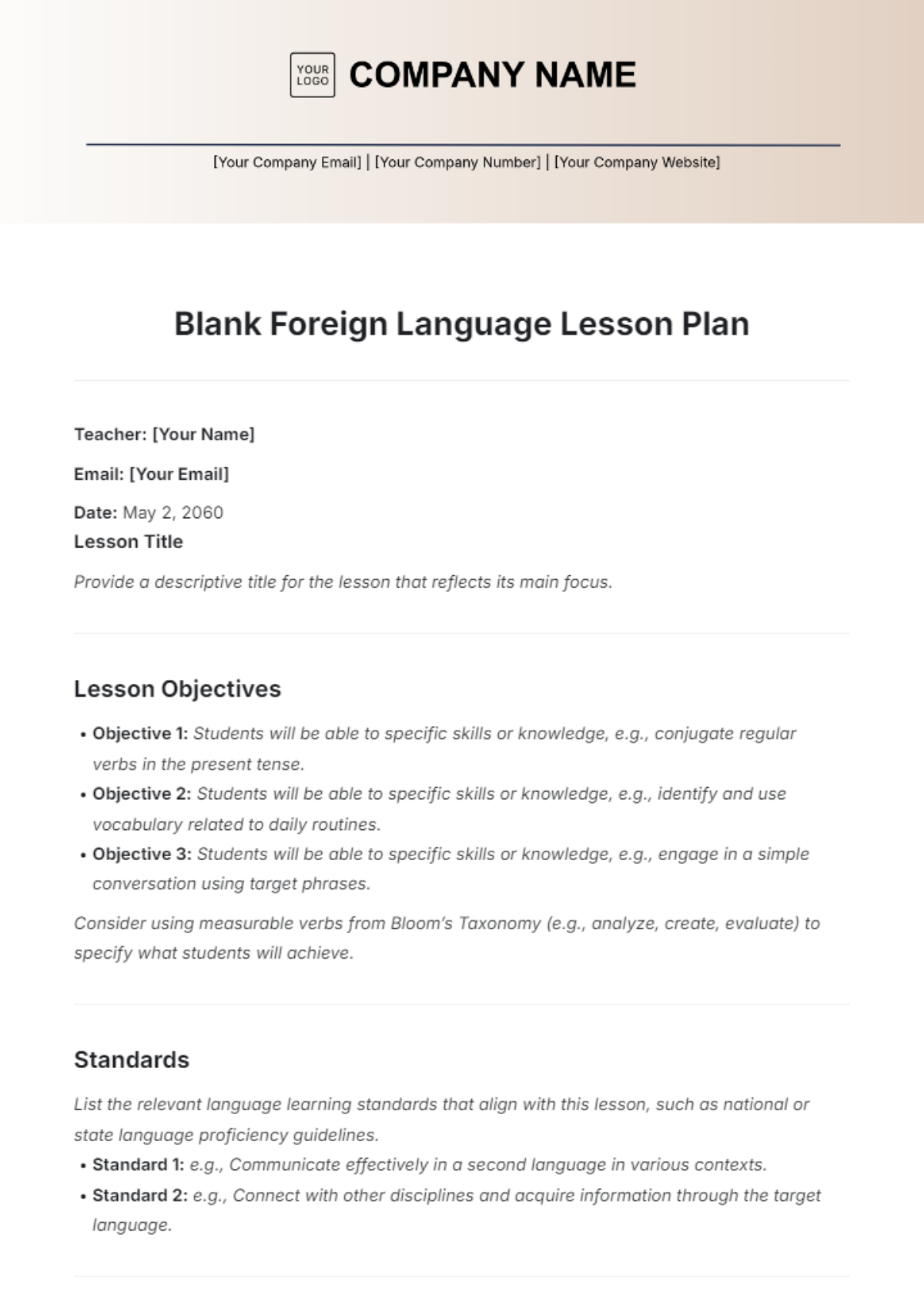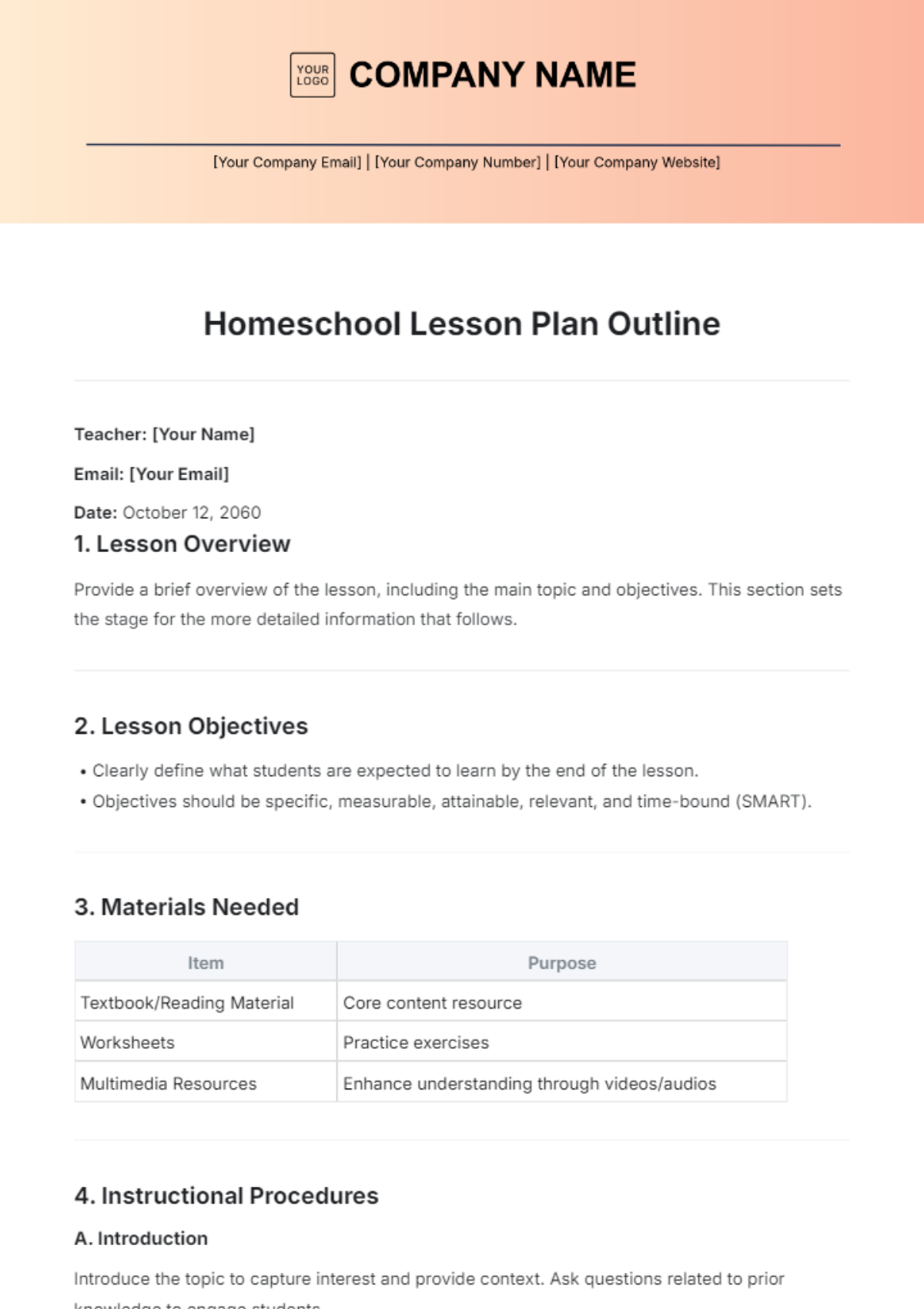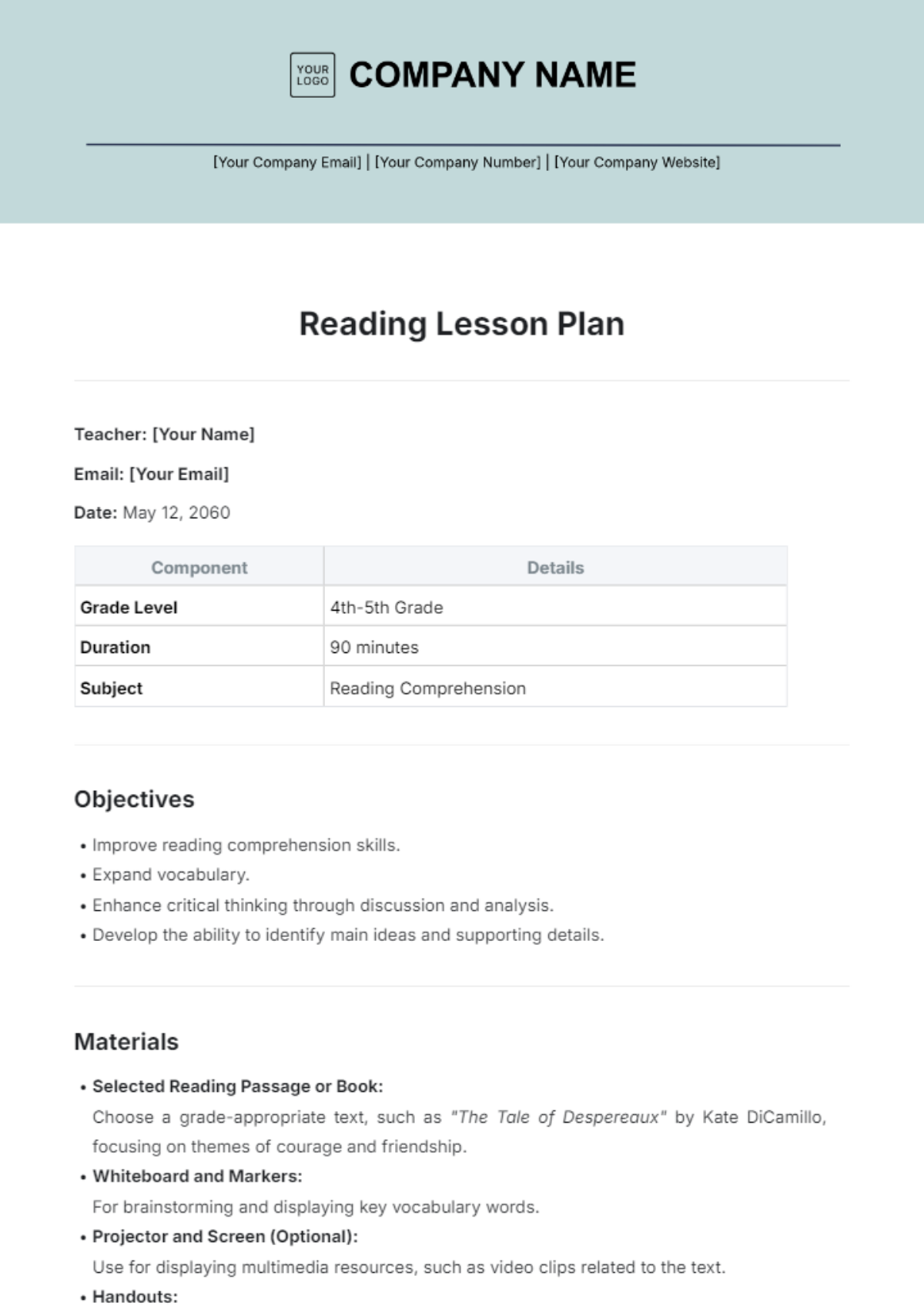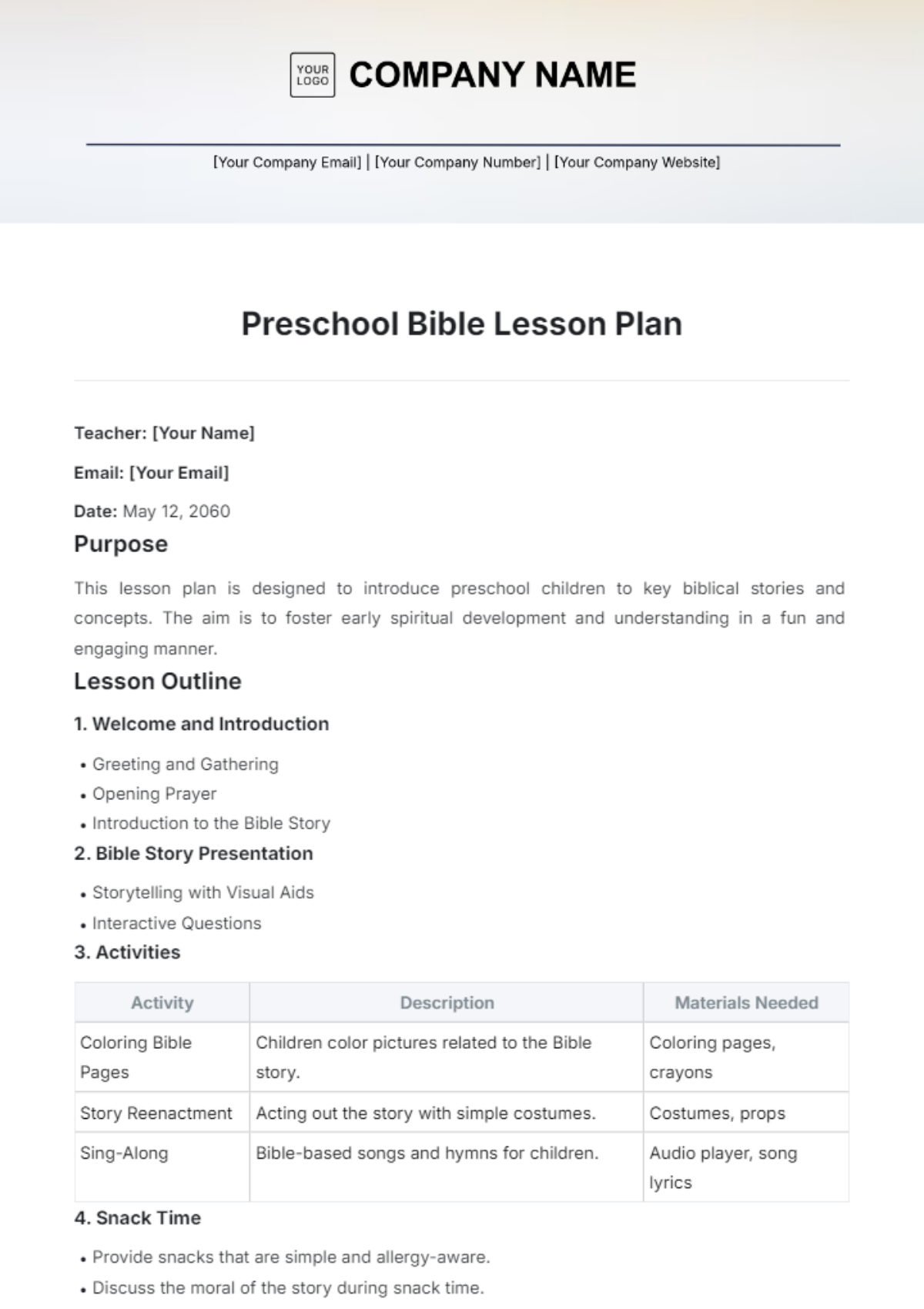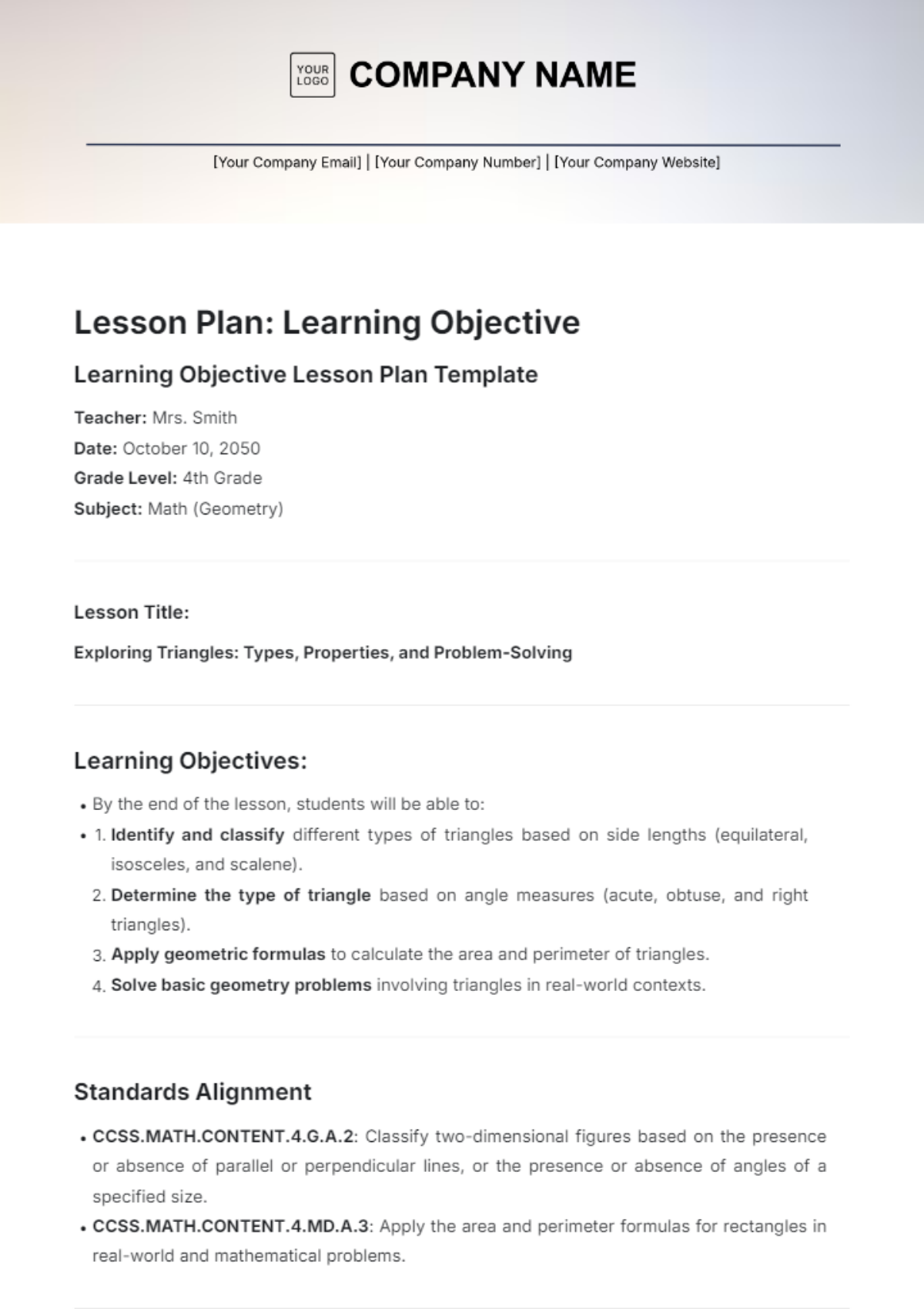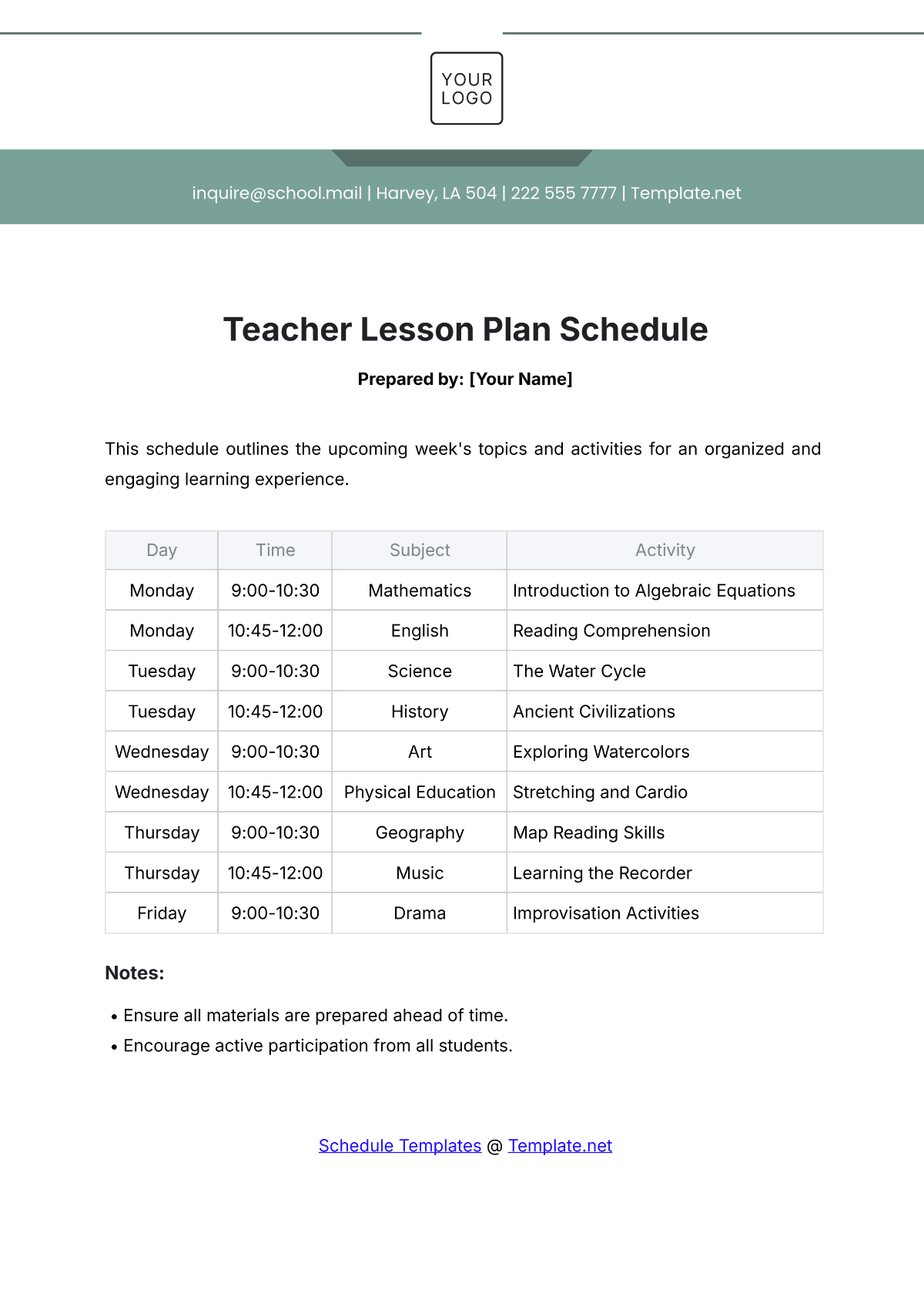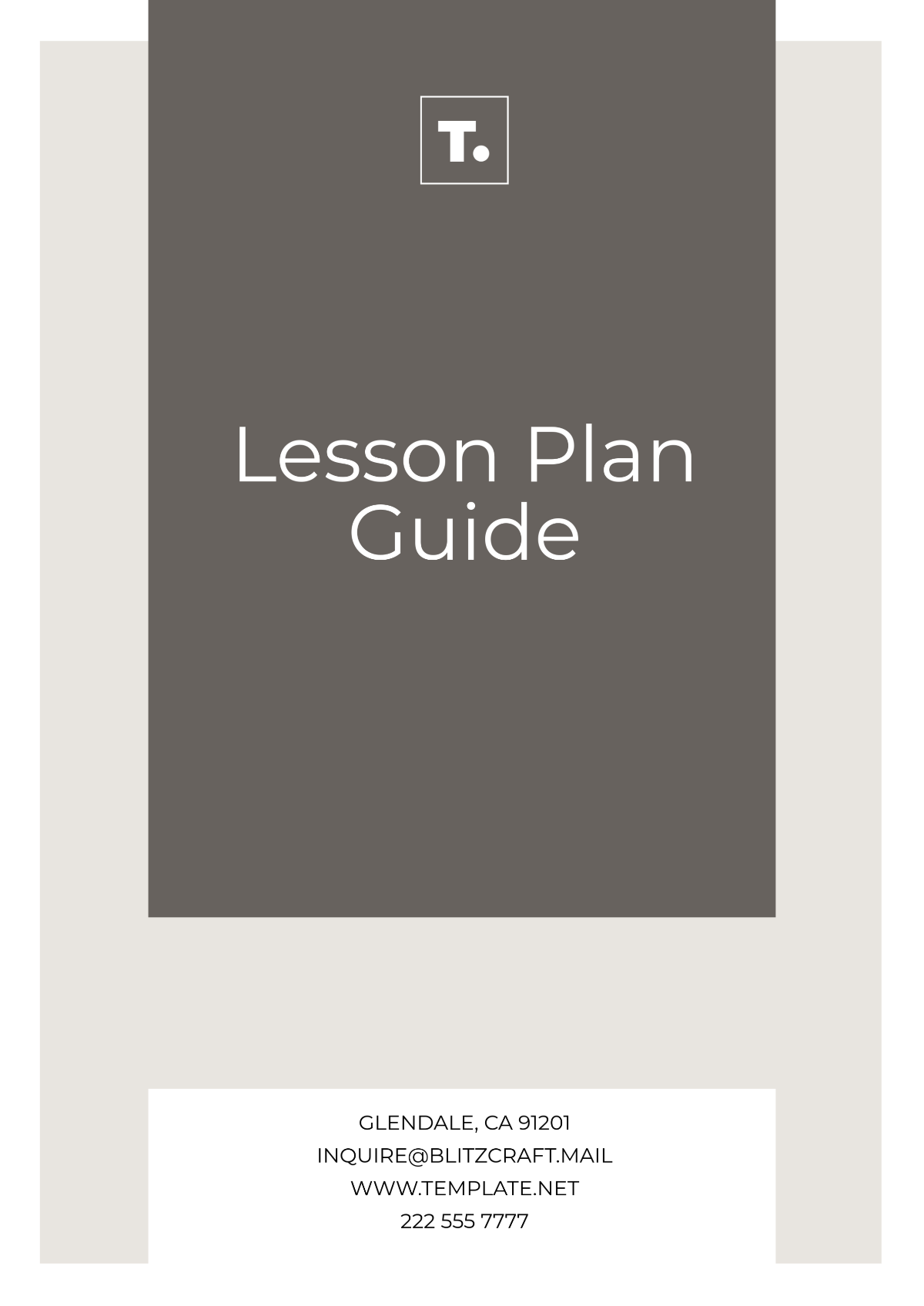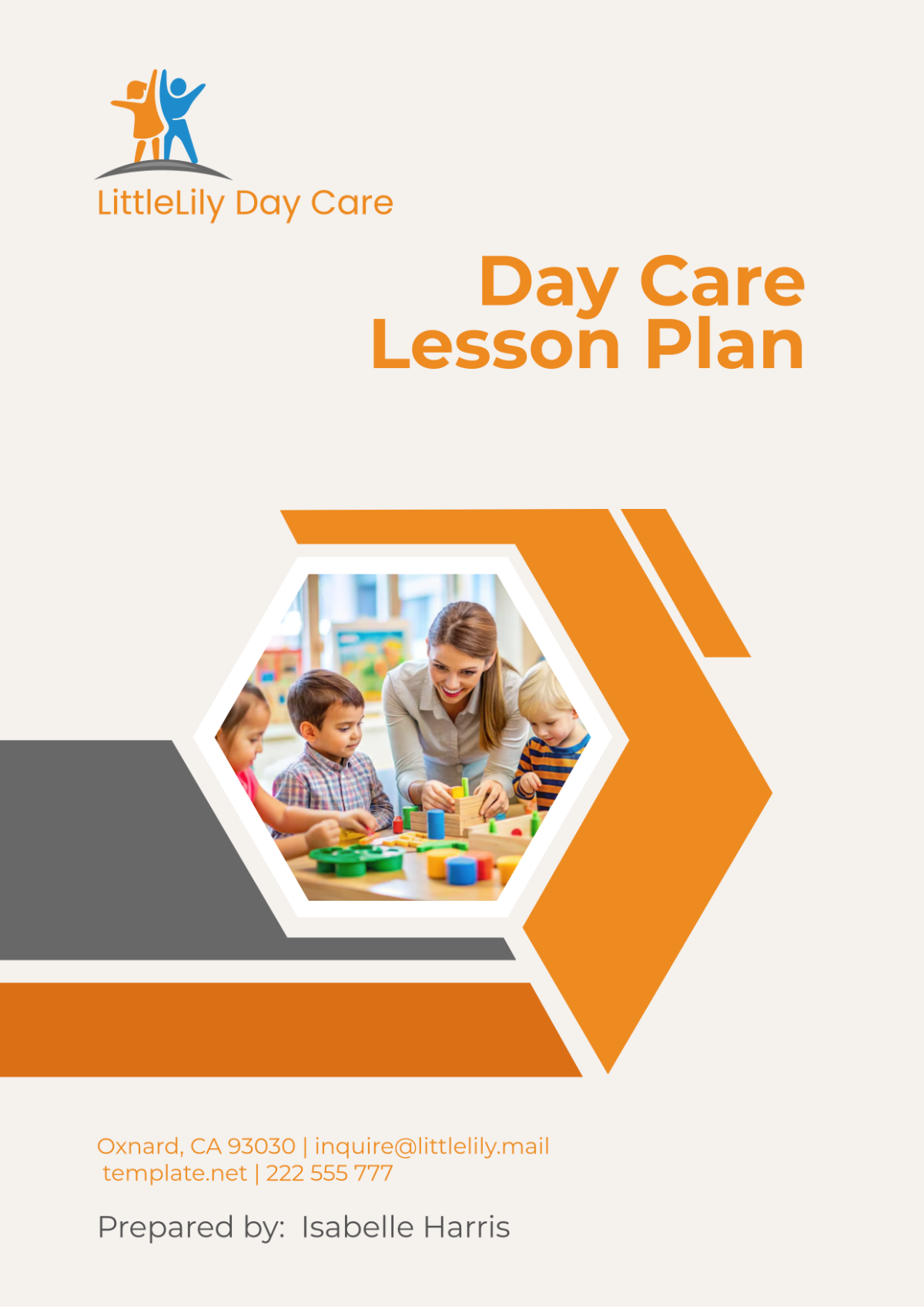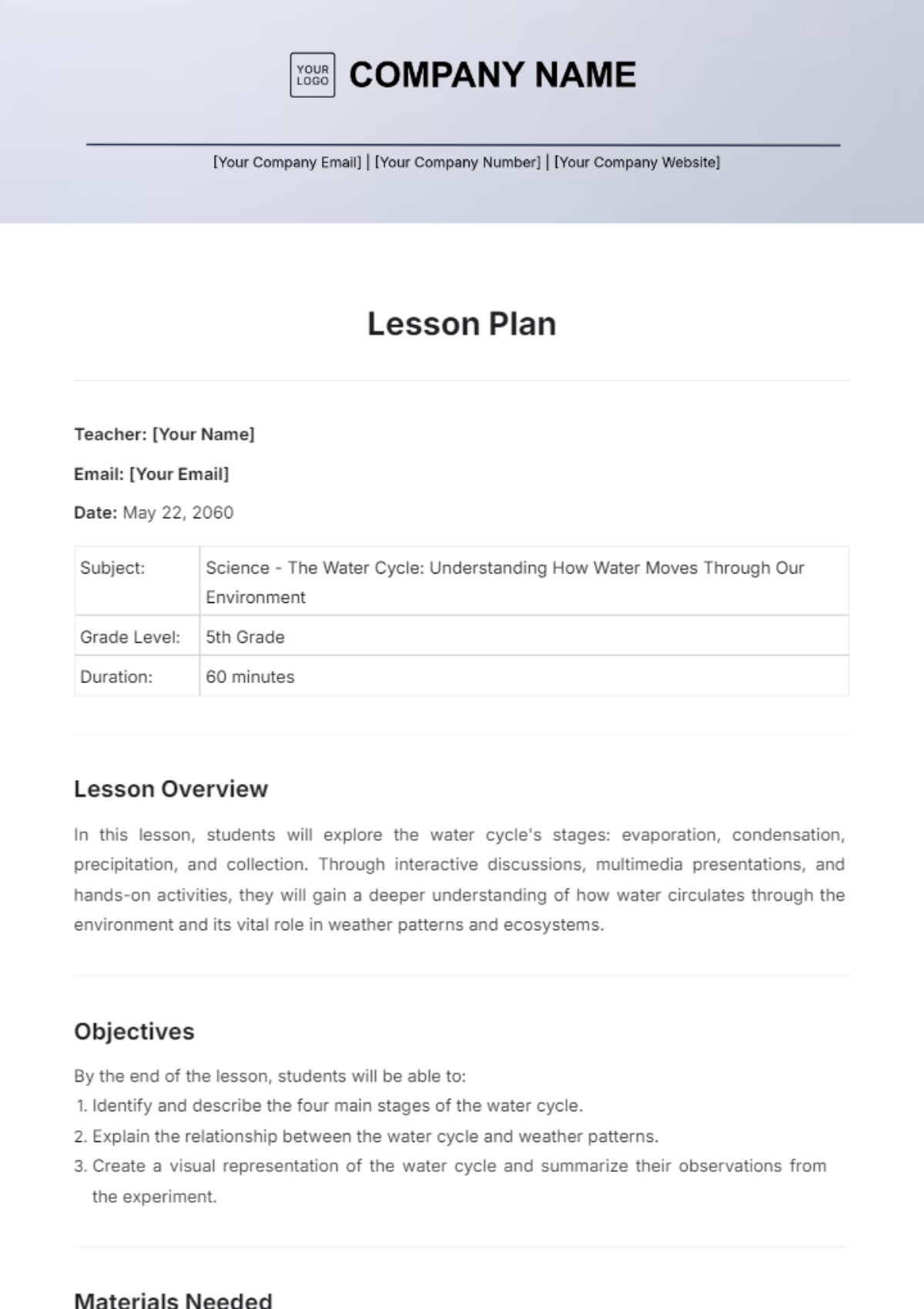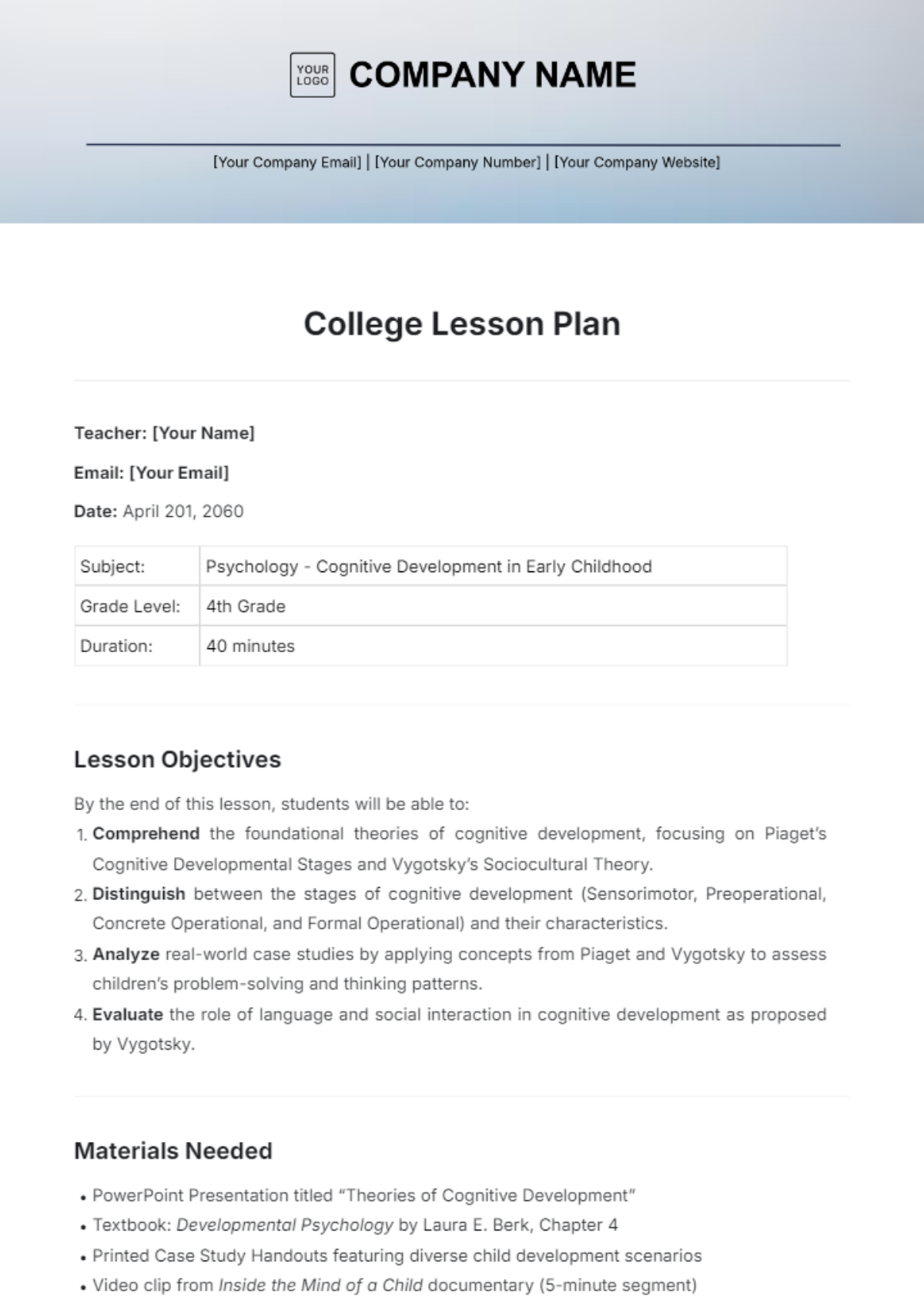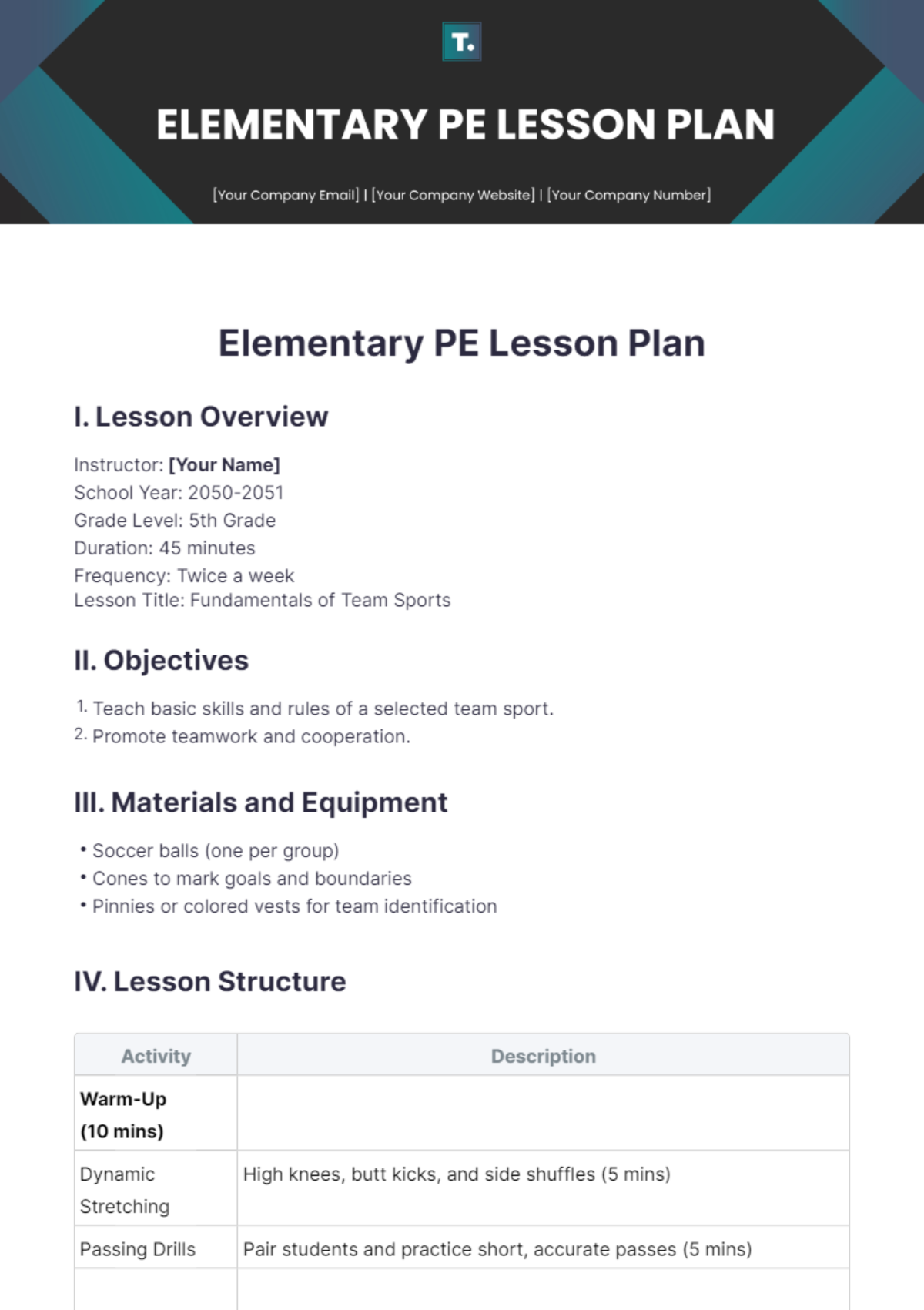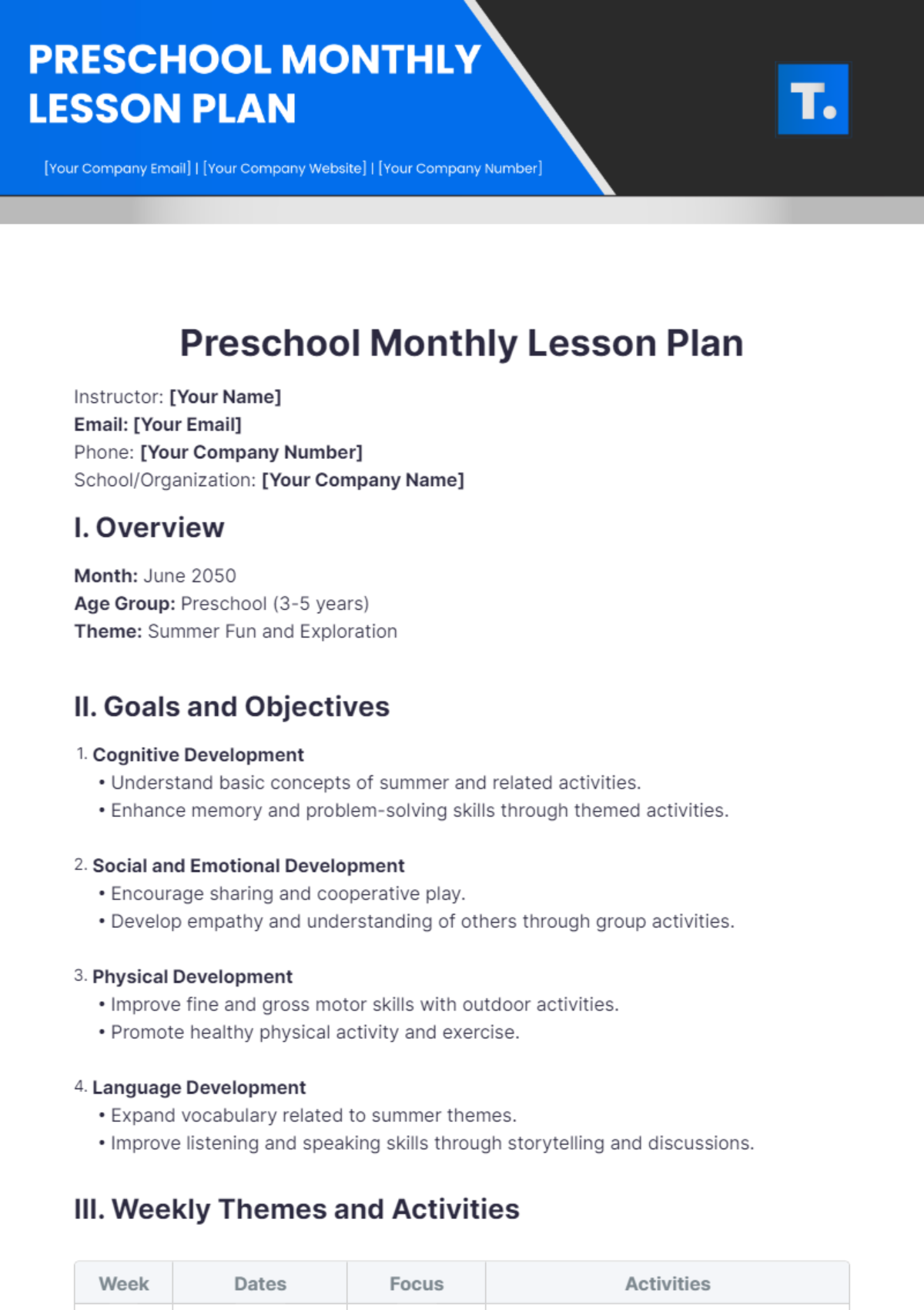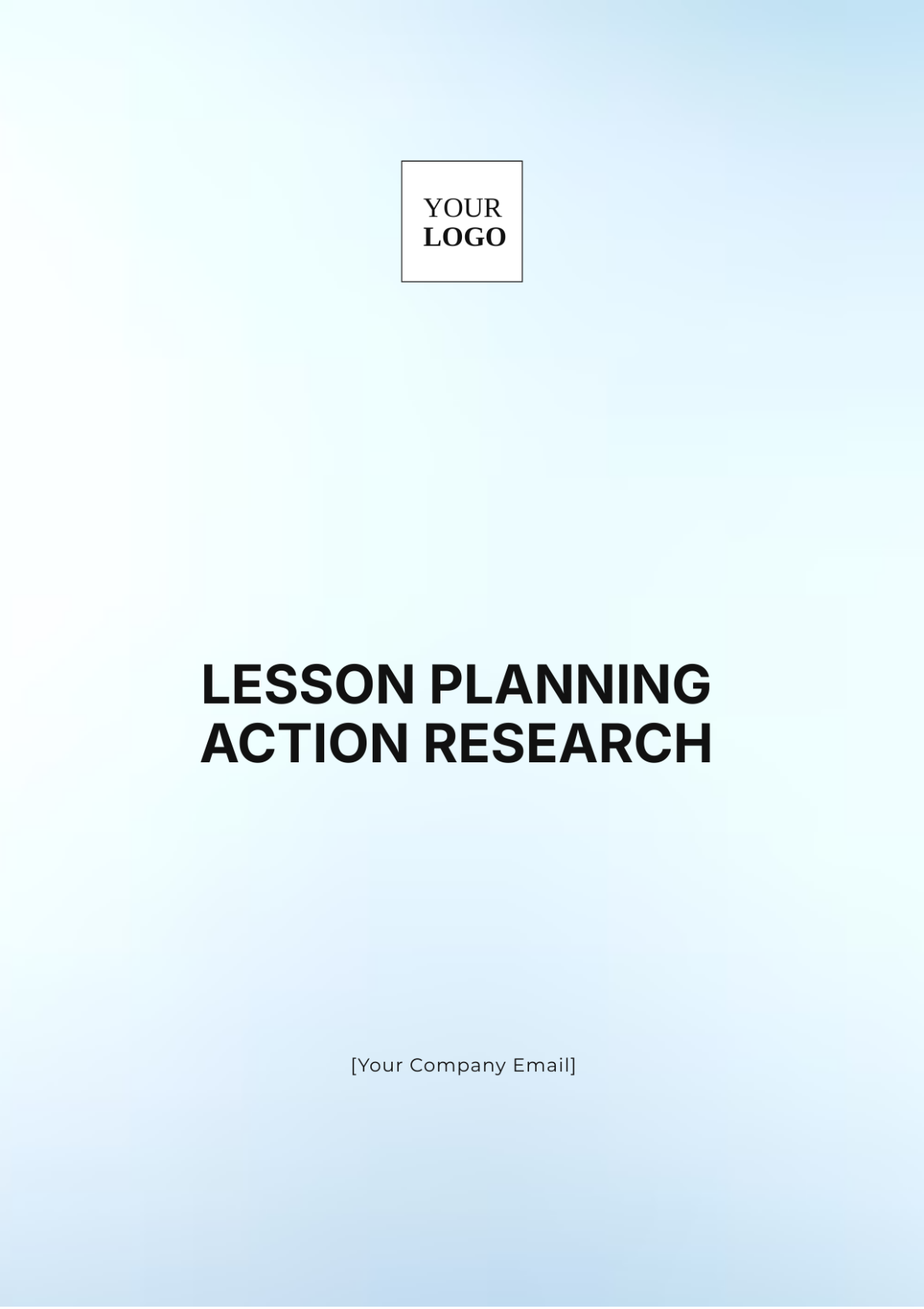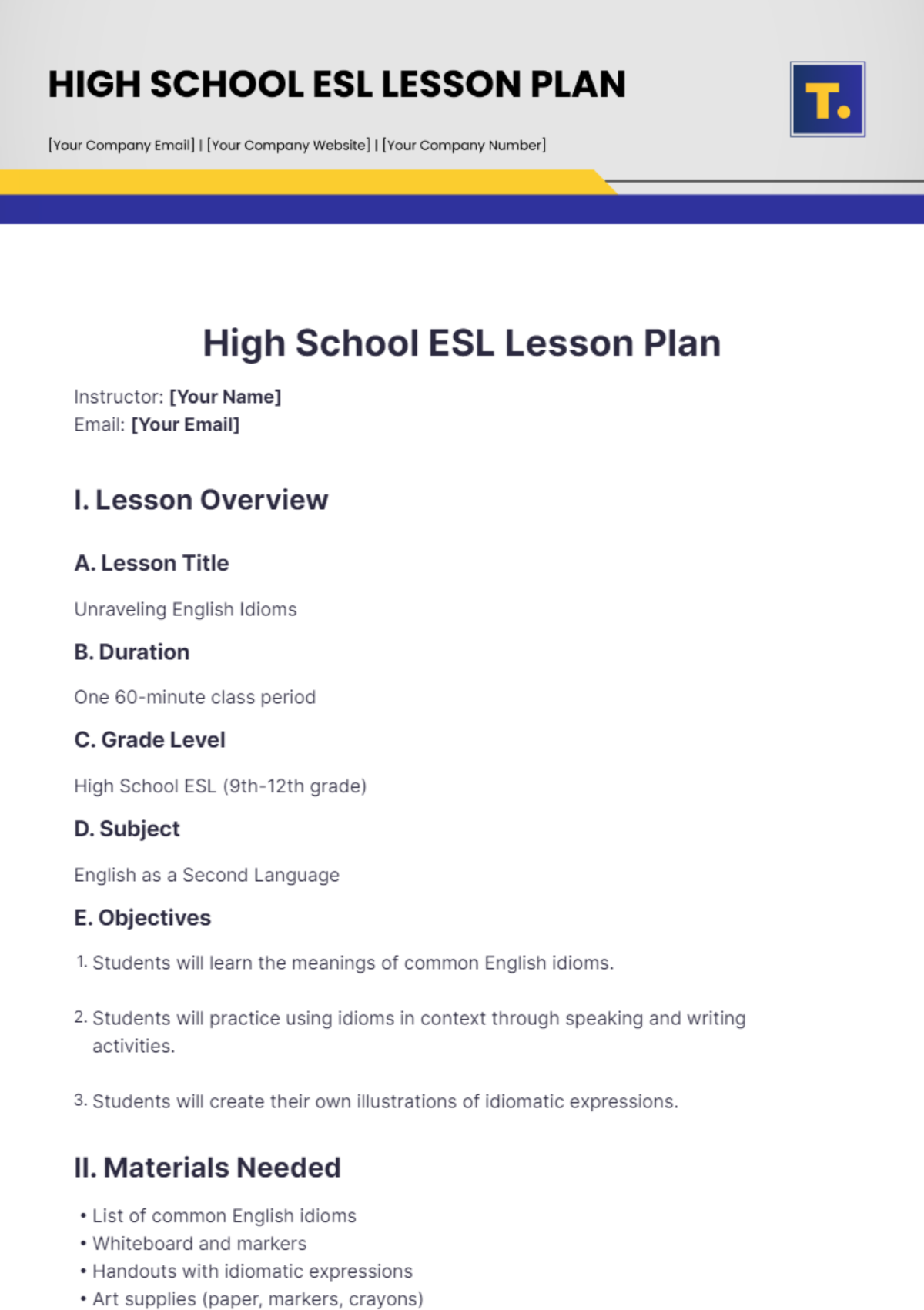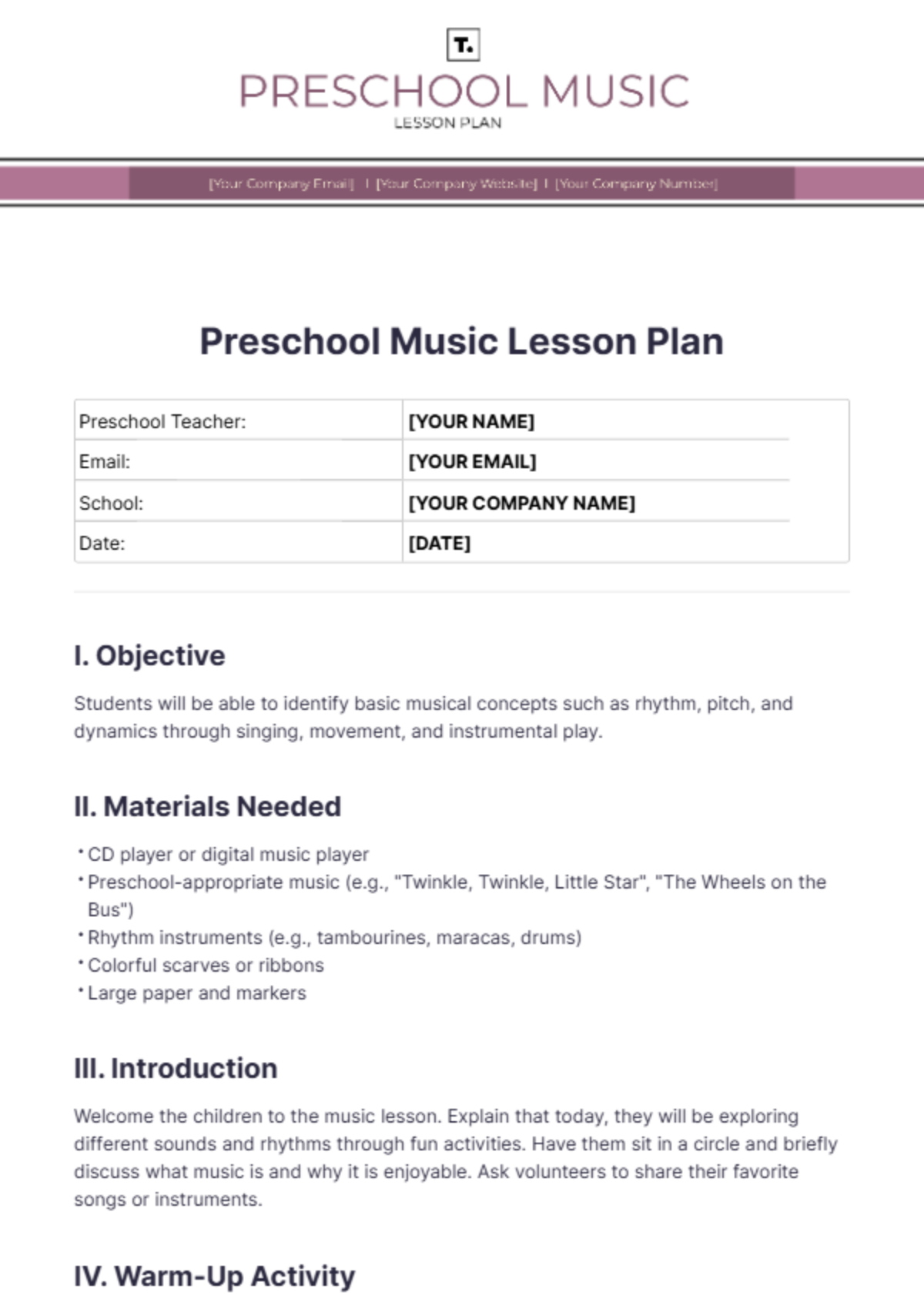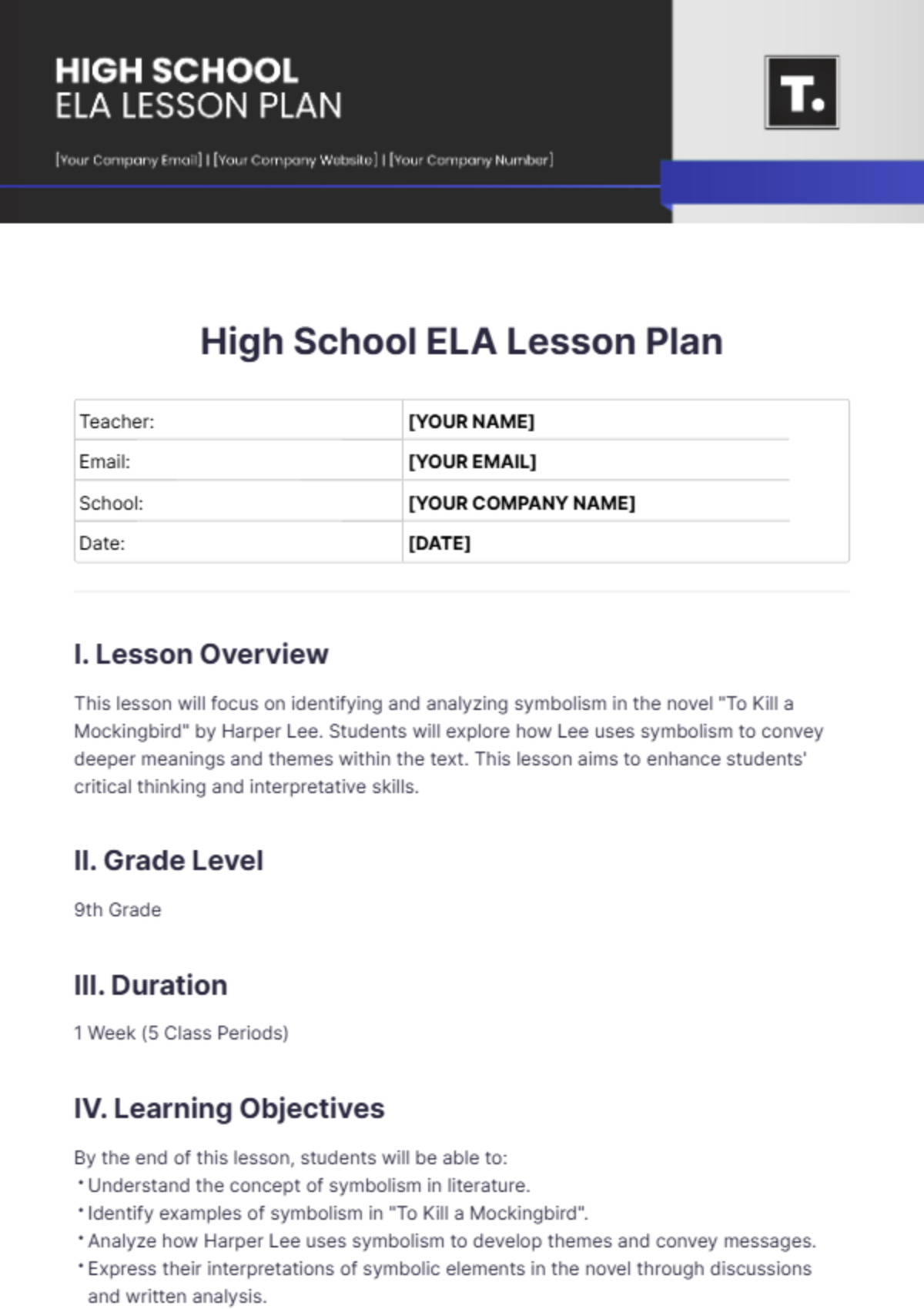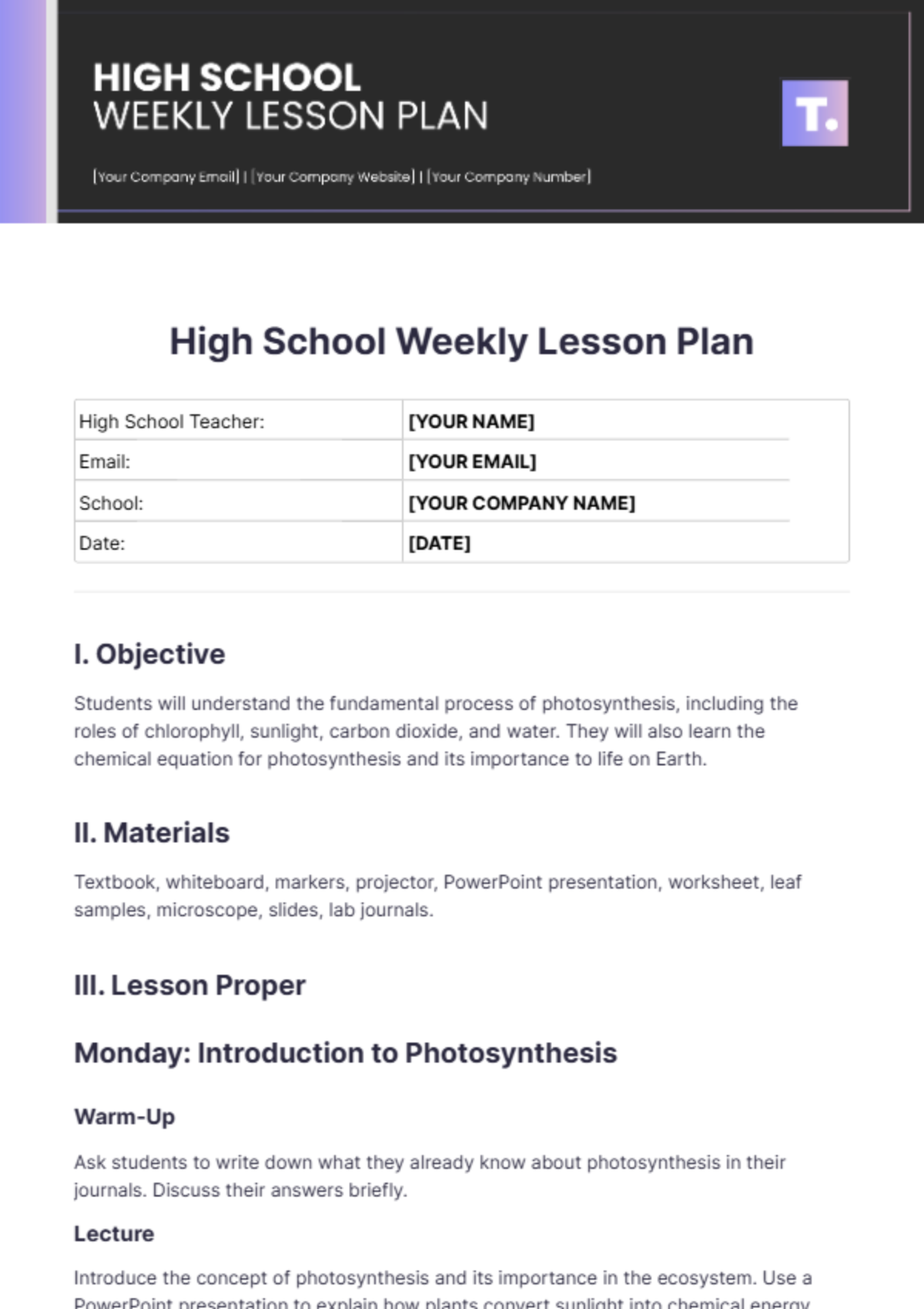5-Day Lesson Plan
Prepared by: [Your Name]
Email: [Your Email]
Institution: [Your Company Name]
Date: October 1-5, 2050
I. Lesson Title
Exploring Ancient Civilizations
II. Lesson Objectives
Students will be able to identify key characteristics of ancient civilizations.
Students will be able to analyze the contributions of ancient civilizations to modern society.
Students will be able to compare and contrast different ancient civilizations.
III. Materials/Resources
Textbooks or online resources on ancient civilizations
Maps, artifacts, and images related to ancient civilizations
Graphic organizers
Writing tools
IV. Instructional Procedures
Day | Topic | Description |
|---|---|---|
Day 1 | Introduction to Ancient Civilizations |
|
Day 2 | Mesopotamia |
|
Day 3 | Ancient Egypt |
|
Day 4 | Ancient Greece |
|
Day 5 | Ancient Rome |
|
V. Assessment
Throughout the week, assess students' understanding of ancient civilizations through a variety of formative and summative assessments. These may include:
Daily exit tickets or quizzes to gauge comprehension of key concepts covered in each lesson.
Participation in class discussions, group activities, and debates.
Completion of graphic organizers or written reflections summarizing key takeaways from each civilization studied.
A culminating project or presentation in which students demonstrate their understanding of the similarities and differences between ancient civilizations and their lasting legacies.
VI. Reflection/Extension
At the end of the week, facilitate a reflective discussion in which students share their insights and reflections on the week-long exploration of ancient civilizations. Encourage students to consider how their understanding of history has deepened and how ancient civilizations continue to influence contemporary society.
Provide extension activities or research projects for students who wish to delve deeper into specific aspects of ancient civilizations or explore lesser-known civilizations not covered in the lesson plan. Offer guidance and resources to support independent inquiry and exploration.
Invite students to make connections between ancient civilizations and current events or global issues, fostering critical thinking and a broader perspective on the interconnectedness of human history.
